General
MUEHSA 13th Annual Scientific Conference a Major Success
Published
10 years agoon
Makerere University Environmental Health Students’ Association (MUEHSA) is a student-led association started in 2002 by students on the Bachelors of Environmental Health Science programme at Makerere University School of Public Health. With the aim of promoting environmental health in Uganda, the association holds a variety of activities including celebrating annual international health days, community outreach programmes and lobbying for improved environmental health.
Year after year, since 2003, the association has been organizing annual scientific conferences hosting participants from different countries and fields related to health. The scientific conferences provide a platform for discussion and presentation of environmental and public health work in Uganda and elsewhere in the world; giving an opportunity for comparison of systems. It is also an opportunity for presentation of innovations and research papers from students, organizational activities and findings in public health. The conferences increase knowledge of students in public health practice and enrich and rejuvenate practitioners’ knowledge-base.
This year, the MUEHSA 13th annual scientific conference was held 7th – 8th April at Esella Country Hotel, Najjera near Kampala, under the theme “Intersectoral collaboration to enhance the role of Environmental Health towards achieving the Sustainable Development Goals.” The conference aimed at providing a clear overview and understanding of the importance of collaborative action across different fields to achieving Sustainable Development Goals, especially in terms of health (defined as a state of complete physical, mental and social well-being and not merely the absence of disease or infirmity.) and stressing the role of environmental health.
In a keynote address, Dr. Sheba Gita noted that unlike the 8 Millennium development goals that were closed in 2015, the 17 Sustainable Development Goals emphasize 3 new aspects, i.e. universality (apply to every nation, sector, business, and organization,) integration (goals are interconnected. We need to achieve all goals, not just one,) and transformation to achieve (we require big changes to achieve the SDGs.) She therefore emphasized that the only way to achieve SDGs is through collaborative actions involving more than one agency. Dr. Gita also illustrated effective collaborative action with a case study on plague outbreak in Arua, 2008, in which an investigation team was set up, made of officials from Ministry of Health, Ministry of Agriculture, an entomologist, US Centres for Disease Control and Prevention officials, local government health practitioners, AFENET, Makerere University School of Public Health team, Veterinary doctors, engineers and anthropologists. They carried out activities including community sensitization on killing rats and keeping domestic animals out of their houses, radio talk shows on plague causes and control methods.
The Guest of Honour, Dr. Okello Ayen (Director of Public Health, Kampala Capital City Authority), hinted on the interface of urbanization and health in his address. He also mentioned that health needs to be seen as an environmental aspect and not simply a hospital issue. He gave an example of the very big solid waste management problem in Kampala affecting air quality. He expressed that Kampala is a lakeside city translating into increasing water contamination and eutrophication due to industrialization and poor waste disposal. Things such as these result in the population having the second largest lake in the world but with water that cannot be used, incurring high water treatment costs. He challenged the participants to do something about the construction of pit latrines in Kampala a largely wetland area and to pay attention to the growing non-communicable diseases burden in the country. In conclusion, he said “at the end of this conference, every person should be able to stand out and teach the public about health according to what we have learned. Publish out something, like a summary! And approach KCCA for help and advice.”
Professor John David Kabasa, the keynote speaker of day 2, introduced the importance of the One Health concept. He said that one health is about policies and systems that will shape the next generation of youth 2035 – 2050. He mentioned that from the time of the industrial revolution and civilization set in, medicine has increasingly been available, there is a decrease in infectious disease mortality, life expectancy increase, population increase and exportation of western civilization among others.
“Today, there is shrinking earth paradigm indicated by overpopulation, global warming and climate change, resource and livelihood hunger and obscure future. As a result of high population, there is high demand for quality products and services, improvement in technology, while globalization and glocalization are running together. However, there are challenges among the youth that need to be addressed in international education and language i.e, integration, ideology, culture, politics, and religion”, Professor. Kabasa said.
He added that the increased interface with the animal world has led to outbreaks of zoonotic diseases like Ebola and Marburg. While in the food industry, urbanization and income growth in Africa are driving a diet transformation, posing higher risks of biothreats. Africa is also the most severely affected region in global water scarcity.
Professor Kabasa said in order to address the challenges, knowledge, ability (skills), attitude, networks, and integrity will be crucial for competition.
The two-day scientific event hosted over 250 participants, including students and staff from 10 institutions of higher learning in Uganda, Cardiff Metropolitan, and Nottingham Trent University (both of the United Kingdom), representatives from district health departments, civil society organisations, among others. Up to 25 presentations were made by local and international participants, focusing on;
1. Partnerships for health
2. One Health concept
3. Air pollution, climate, and health
4. Affordable and clean energy
5. Water, sanitation, and hygiene
6. Food safety and food security
7. Reproductive health
8. Occupational health
9. Public health legislation
10. Opportunities for students
The MUEHSA patron, Ms. Ruth Neebye Mubeezi, commended the always growing enthusiasm of the students and appreciated the organizing committee. She noted that such conferences are important for health in the nation and that focusing on intersectoral collaboration this year is more than just a great idea for wider coverage but is also a perfect timing for the health systems which require more than independent silos but togetherness in action for health.
The outgoing MUEHSA president, Ms. Anyonga Prisca cherished the work of fellow students and gave open appreciations to all supporting partners especially the school administration, and gave tokens of appreciation, awards to different presenters and participants at the conference.
Article by OHCEA Communication Team
You may like
General
Reflecting on Strides made in Championing Inclusive Education
Published
2 days agoon
December 1, 2025By
Eve Nakyanzi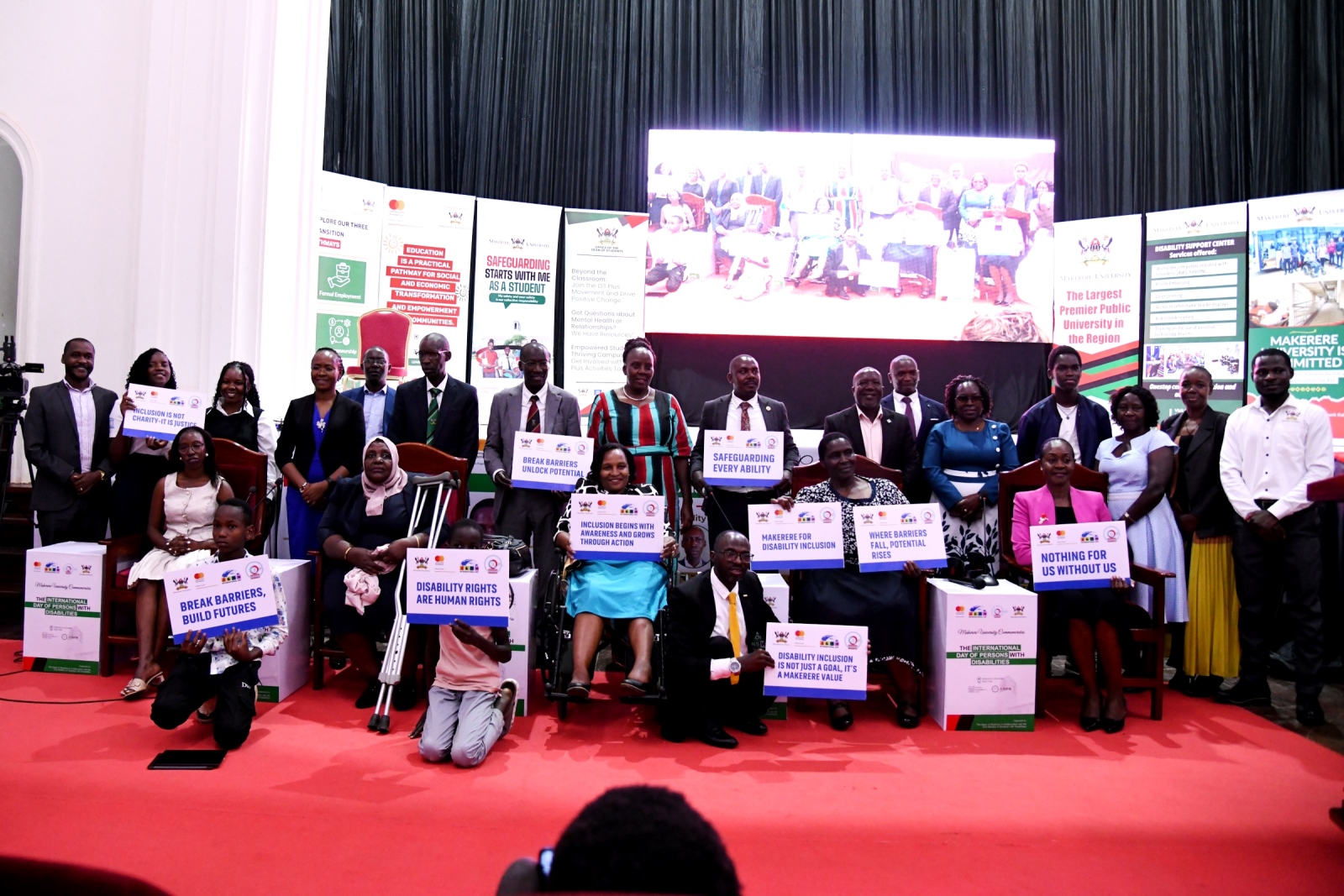
Makerere University today joined the global community in marking the International Day of Persons with Disabilities, a moment dedicated to reflection on inclusion and shared responsibility. As the world pauses to honor the dignity and leadership of persons with disabilities, the University is using this year’s commemoration to reaffirm its commitment to building a campus where every individual is supported to thrive. The day is not only a celebration of resilience and contribution, but also a call to the wider community—students, staff, policymakers, and partners—to actively participate in shaping an environment where accessibility, understanding, and respect are woven into everyday practice. Through this observance, Makerere positions itself once again as a champion of inclusive education and a beacon for transformative change.
Tangible gains made
During her address at the event held in the Main Hall, the Chief Guest, Hon. Hellen Grace Asamo, Minister of State for Disability Affairs, paid tribute to Makerere University’s leadership, longtime advocates like Hon. Safia Nalule, and the many individuals who have advanced disability rights from the early years of mere “talking” to the tangible gains seen today. Speaking candidly, she emphasized that disability is often shaped by societal attitudes rather than physical conditions alone, urging families, institutions, and communities to confront stigma at its roots. Drawing from her own educational journey and the barriers she faced—including inaccessible learning spaces, limited course options, and discriminatory hiring practices—she reminded the audience that inclusion must go beyond numbers to genuine opportunity.
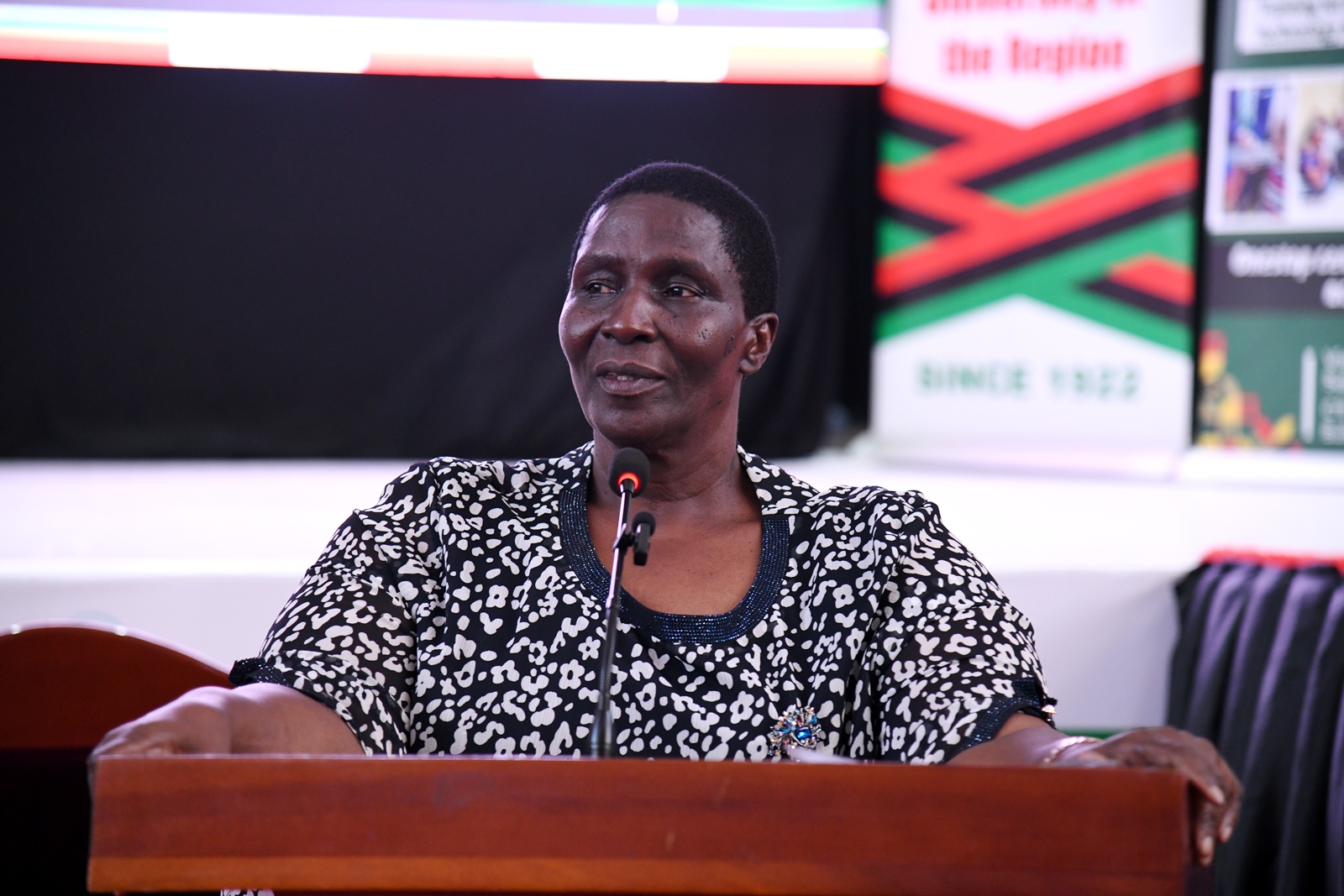
Hon. Asamo’s message to persons with disabilities was equally empowering: visibility and assertiveness are essential in claiming space, shaping policy, and influencing resource allocation. With examples from government reforms, improvements in accessibility, and efforts to standardize sign language interpretation, she underscored that progress is possible when commitment meets intentional planning. Her remarks reinforced a powerful truth—disability inclusion is a right, not a favour—and institutions like Makerere must continue leading the way in creating environments where every individual can participate, contribute, and thrive.
The keynote speaker Hon. Safia Nalule Jjuuko, Chairperson of the Equal Opportunities Commission and a former Member of Parliament representing persons with disabilities for 15 years, delivered a keynote rich in personal testimony, institutional memory, and policy insight. She reflected on her own journey as a student—navigating inaccessible buildings, exhausting practical sessions, and discouraging attitudes—to illustrate how far the University and the country have come in strengthening inclusion. A proud alumna of Makerere, she celebrated the progress made, including improved infrastructure and increased representation of persons with disabilities in national leadership. She however highlighted that gaps remain, particularly the shortage of appropriately trained lecturers capable of supporting learners with disabilities across all levels of education.
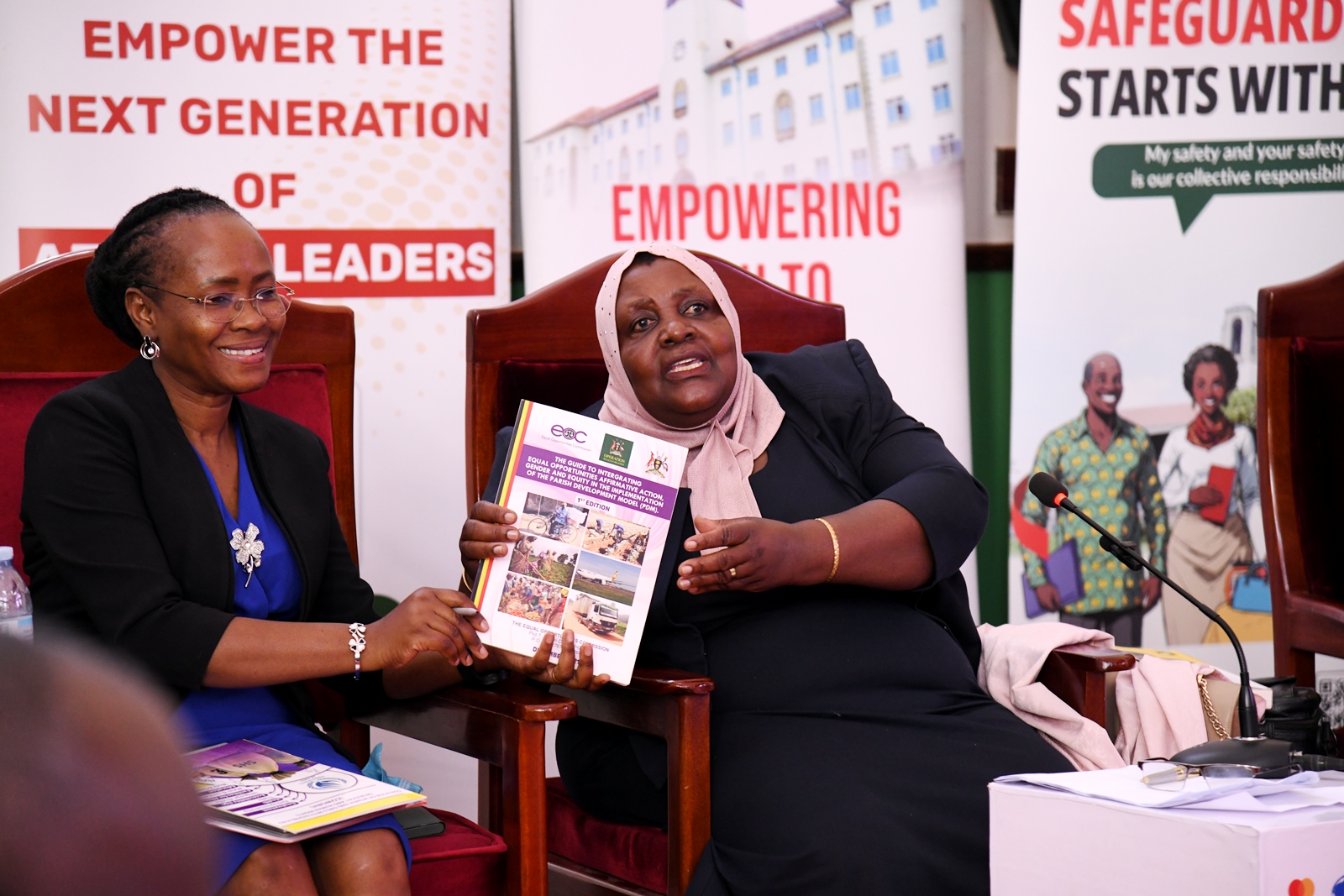
Drawing from her work at the Equal Opportunities Commission, she emphasized the constitutional mandate to eliminate discrimination, promote affirmative action, and ensure a just and fair society for every Ugandan. Hon. Nalule unpacked the theme of the day by highlighting the global shift toward disability-inclusive development, stressing that concepts like intersectionality, “leaving no one behind,” and cross-cutting inclusion all speak to the same truth: inclusive planning is central to sustainable progress. She reminded the audience that disability is an evolving concept shaped by environmental barriers, negative attitudes, and lack of social support—and that participation, consultation, and awareness must always place persons with disabilities at the centre as experts of their own experiences.
Citing national statistics, policy frameworks, and ongoing reforms such as gender and equity budgeting, she challenged institutions like Makerere to engage actively in national planning processes, interrogate the cost of exclusion, and prepare graduates—especially those with disabilities—to benefit from Uganda’s development priorities in agriculture, manufacturing, tourism, and services. Her address was both a celebration of progress and a call to action: a reminder that meaningful inclusion requires attention to detail, responsive planning, and intentional investment so that every student, regardless of ability, can participate fully and contribute to national transformation.
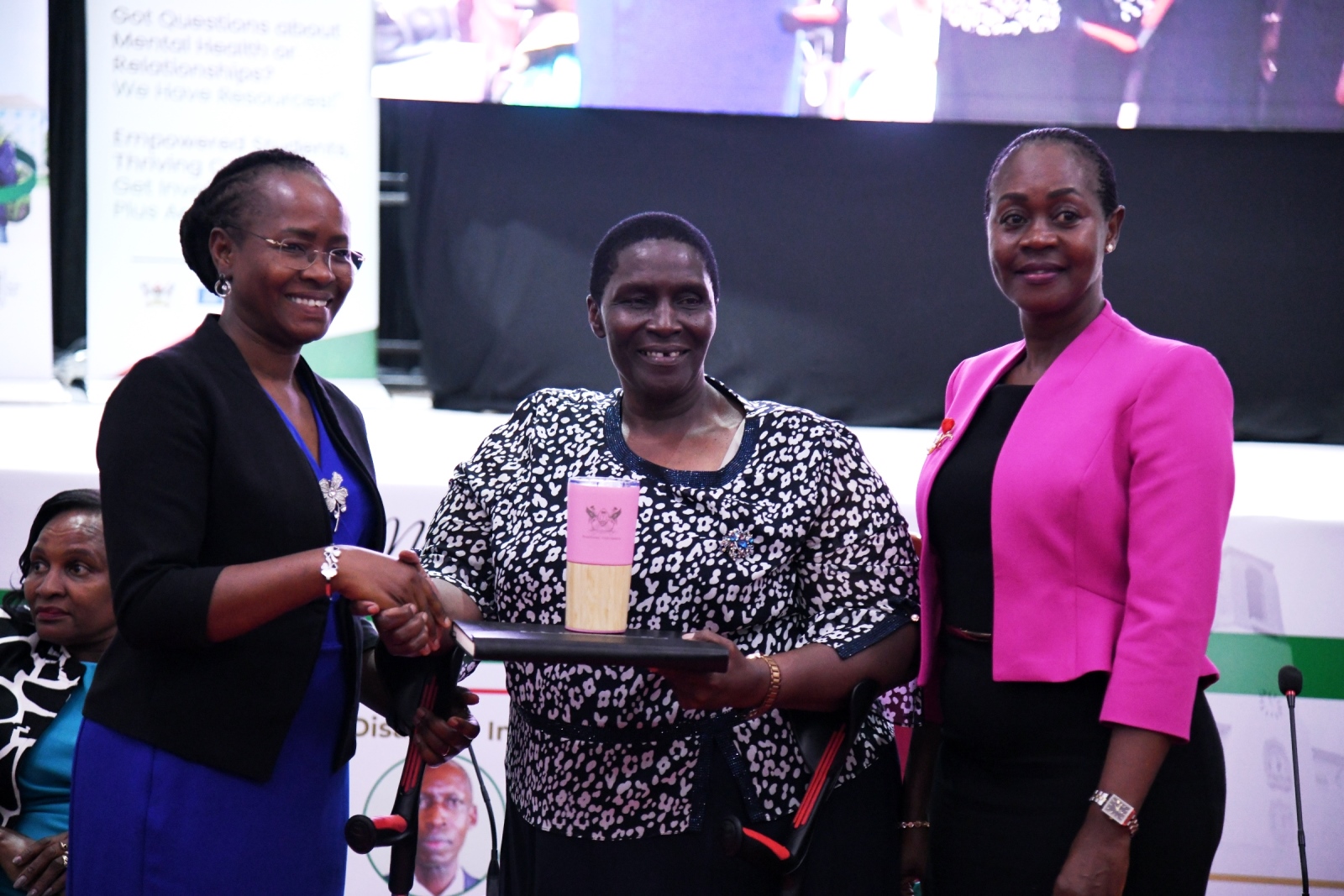
Makerere upholds responsiveness
The Acting (Ag.) Vice Chancellor Prof. Sara Ssali reaffirmed Makerere University’s commitment to building an inclusive campus that models the kind of responsive institutions needed for social progress, stressing that inclusion requires both empowering marginalized people and adapting institutional structures so they no longer have to “fit in.” Drawing on Makerere’s long record of intentional policies—from improved physical accessibility and the Disability Support Centre to inclusive teaching practices, staff training, and collaborations—she highlighted practical steps the University has taken while acknowledging more work remains, especially around intersectionality and tailored support for diverse disabilities.
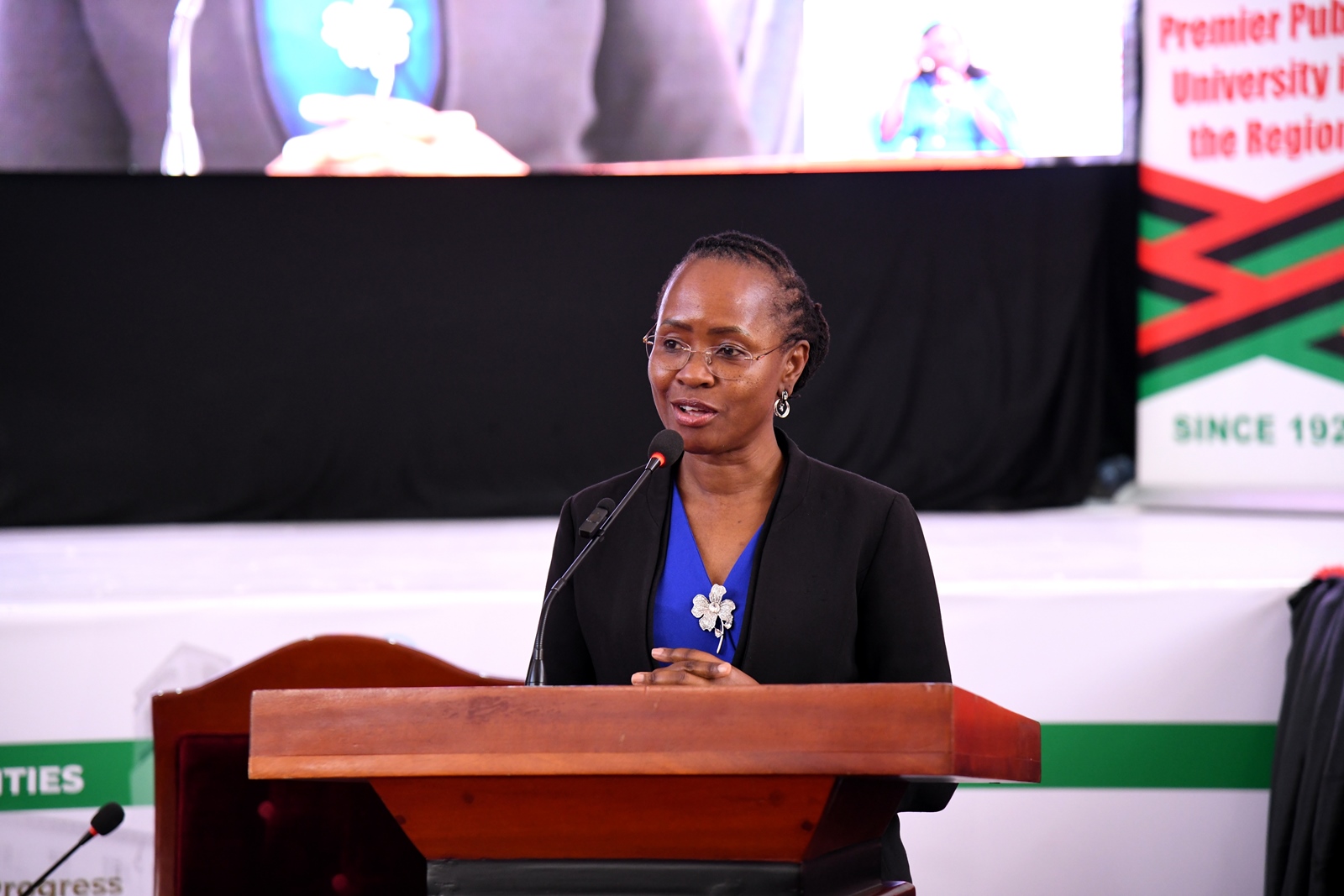
Prof. Ssali urged departments to mainstream disability concerns in planning and budgeting, praised the everyday care provided by wardens and support staff, and called for research, innovation and accountability so that students and staff with disabilities can fully participate and contribute. She closed by renewing Makerere’s pledge to remove barriers and nurture the next generation of inclusive leaders.
Mr. Amon Muteganda, who represents staff living with disabilities on the University Council, reaffirmed Makerere’s identity as an inclusive institution, noting that whenever disability-related concerns are raised in Council, members listen attentively and respond with genuine commitment. He expressed appreciation to University Management for consistently acting on issues brought forward, highlighting recent improvements such as the introduction of dedicated transport for students and staff with disabilities—a proposal he and colleagues championed and which has now come to fruition. He highlighted the importance of representation at multiple levels of the institution, demonstrating that Makerere’s inclusivity efforts are not symbolic but actively shaping policy, practice, and everyday experiences for persons with disabilities.
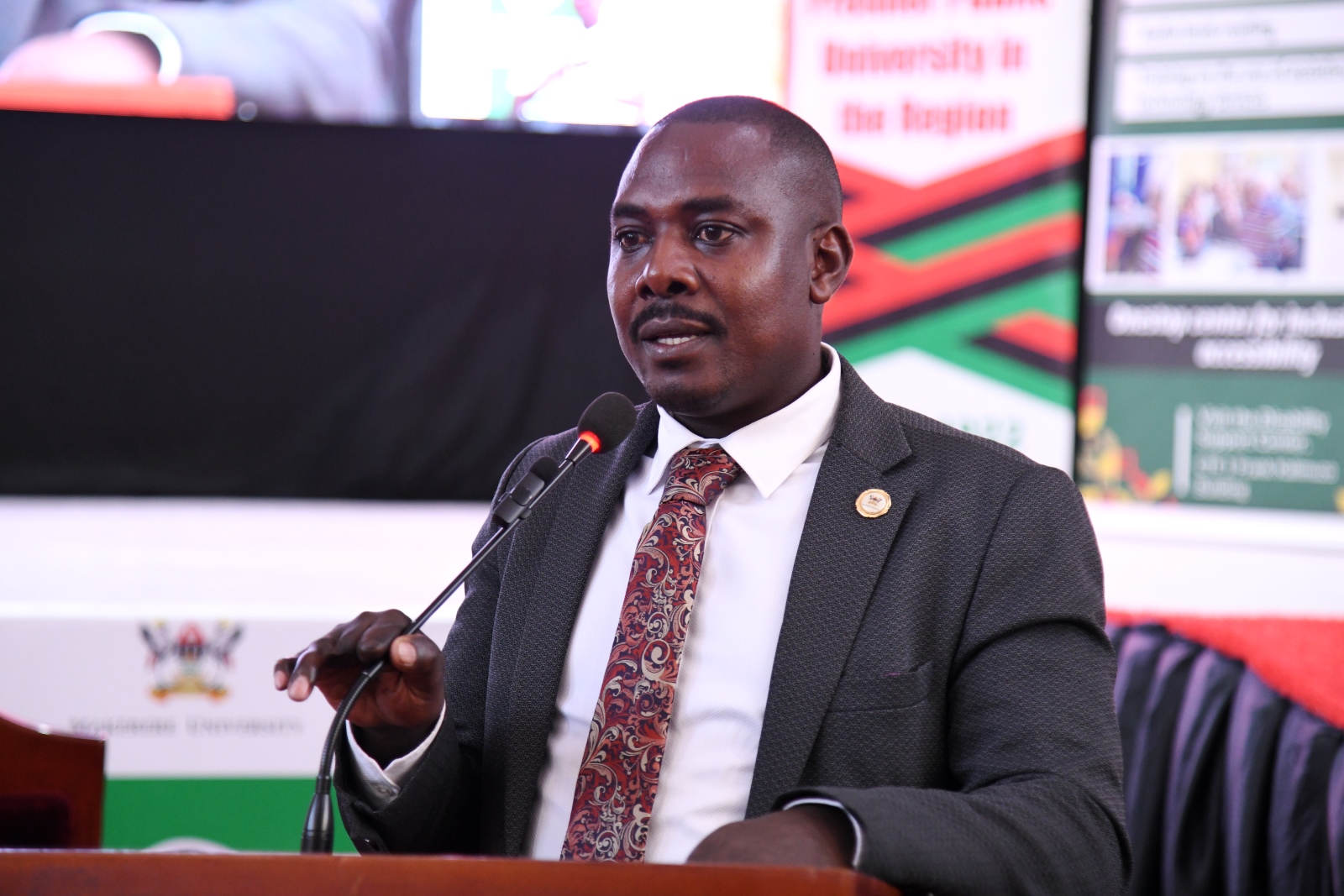
Dr. Winifred Kabumbuli, the Dean of Students, highlighted Makerere University’s deliberate efforts to foster a campus where every learner feels supported and able to thrive. She spoke about the active implementation of the University’s policy for persons with disabilities, alongside the safeguarding policy, both aimed at ensuring the welfare and dignity of all students. Dr. Kabumbuli pointed to the expanding range of accessible accommodation—such as designated halls for students with disabilities and the newly refurbished Mary Stuart Hall equipped with an elevator—as well as campus-wide additions like ramps, elevators, and accessible pathways.
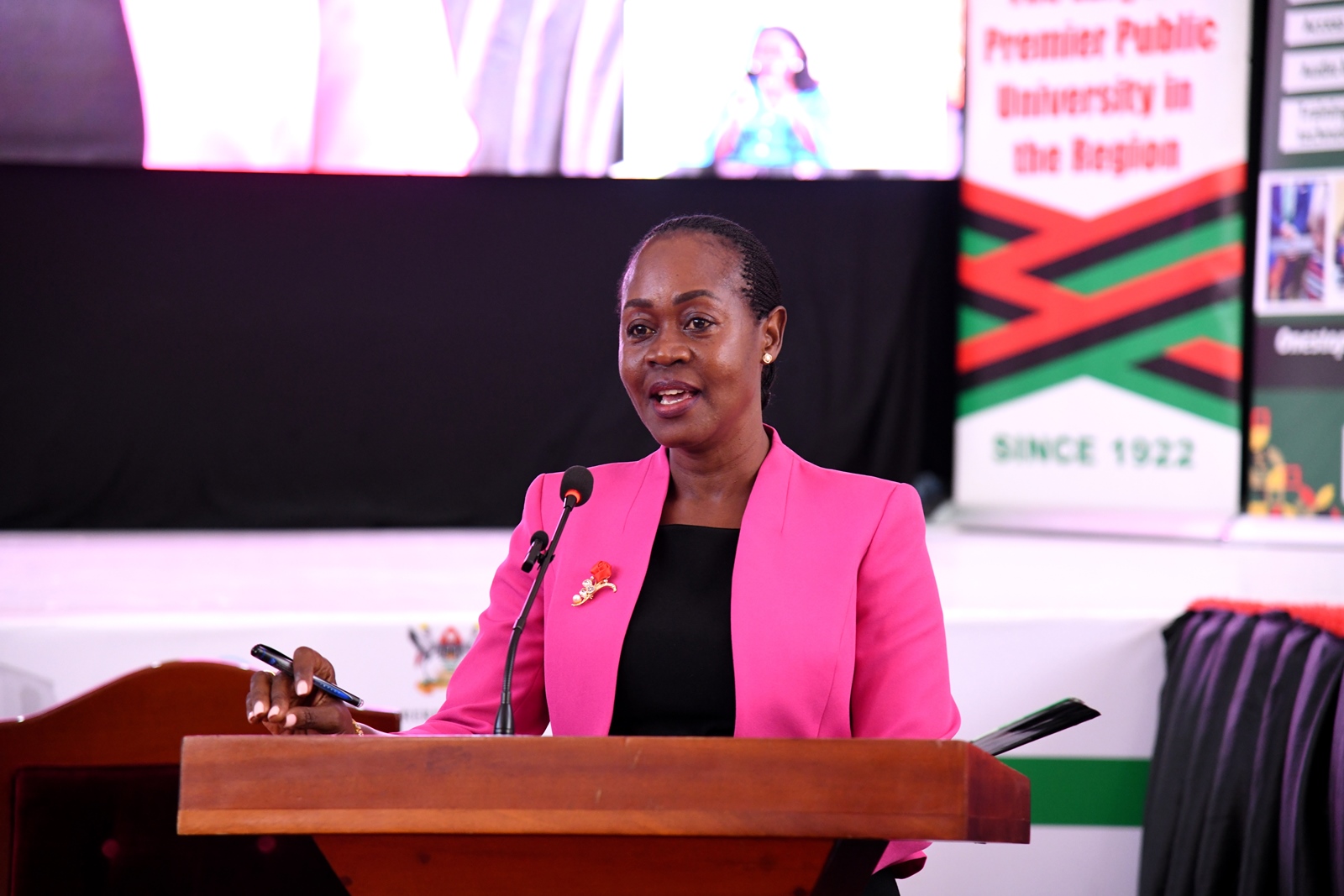
She also emphasized the growing availability of assistive devices, including wheelchairs, Braille materials, and white canes, together with academic support measures such as extra time and readers during examinations. Her remarks captured Makerere’s intentional approach to inclusion, one that enables students with disabilities to navigate university life with comfort, confidence, and equal opportunity.
A student speaks out
First-year architecture student Sabiri Mungufeni shared a heartfelt account of his transition into university life, describing both his initial worries and the encouragement he found upon arriving at Makerere. He recalled fearing how his disability would fit within the demanding academic environment of the College of Engineering, Design, Art and Technology, especially when he discovered that much of the work in architecture is still done manually. Yet through determination and the support of staff and peers, he quickly realized he could excel. Sabiri noted that seeing other students with disabilities walking confidently across campus inspired him to believe he, too, belonged. He expressed hope that, as inclusion continues to deepen, students with disabilities will be able to pursue a wider range of academic programs beyond the usual pathways, demonstrating—like many trailblazers before him—that ability is not defined by limitation but by opportunity and support.
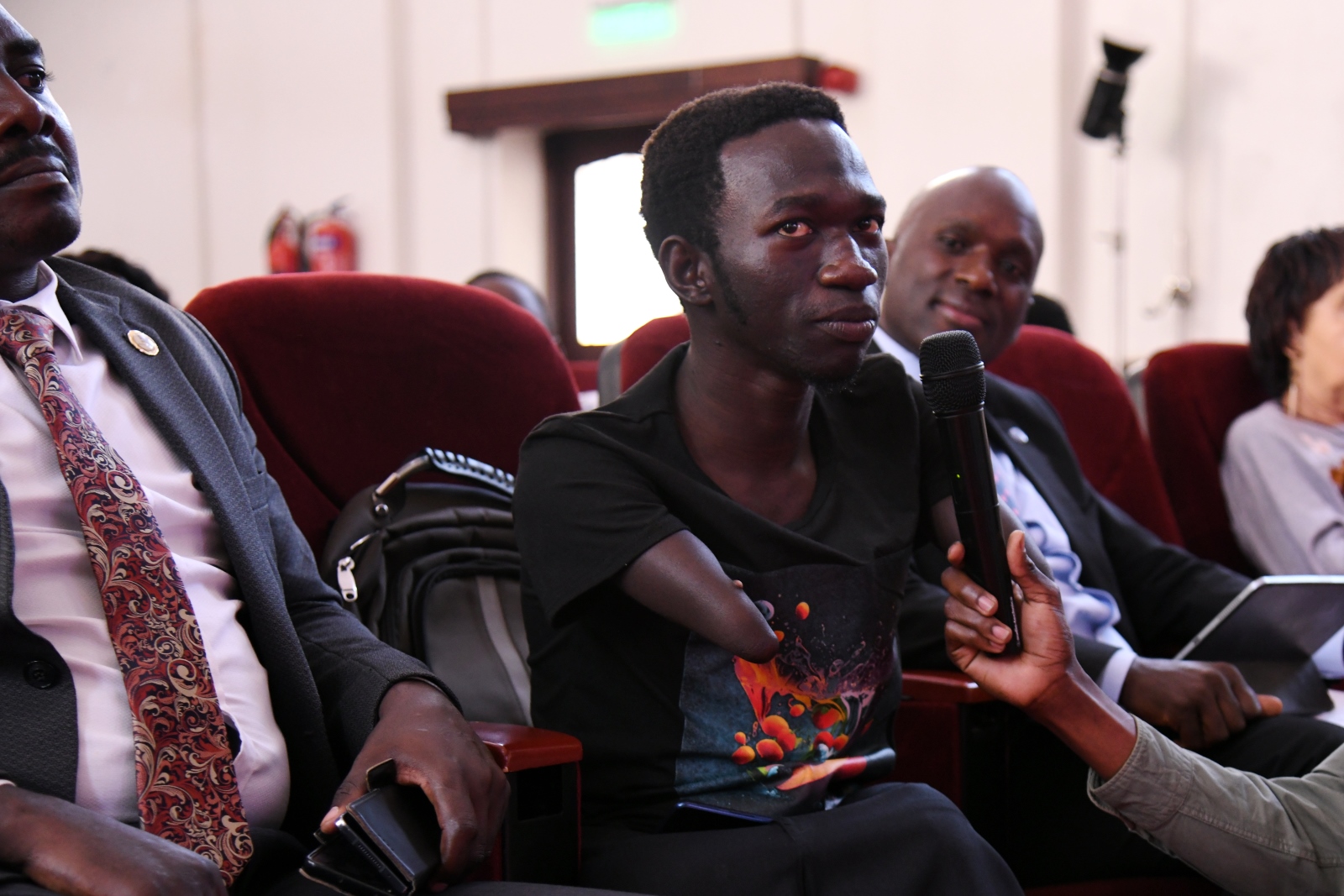
Personal accounts urge sustained momentum
The event also featured a dynamic panel discussion moderated by Dr. Diana Ateenyi Ahumuza, offering a blend of academic, experiential, and advocacy-based perspectives on disability inclusion. The panel brought together Dr. Naboth Rwakazwaire, founder of Hope for People with Disabilities; Prof. Anthony Mugagga, Principal of the College of Education and External Studies (CEES); Lord Councillor Peace Sserunkuma; and Ms. Catherine Nakibuuka, a second-year law student. Their conversation explored practical solutions, policy gaps, personal experiences, and the role of institutions like Makerere in shaping a more inclusive society.
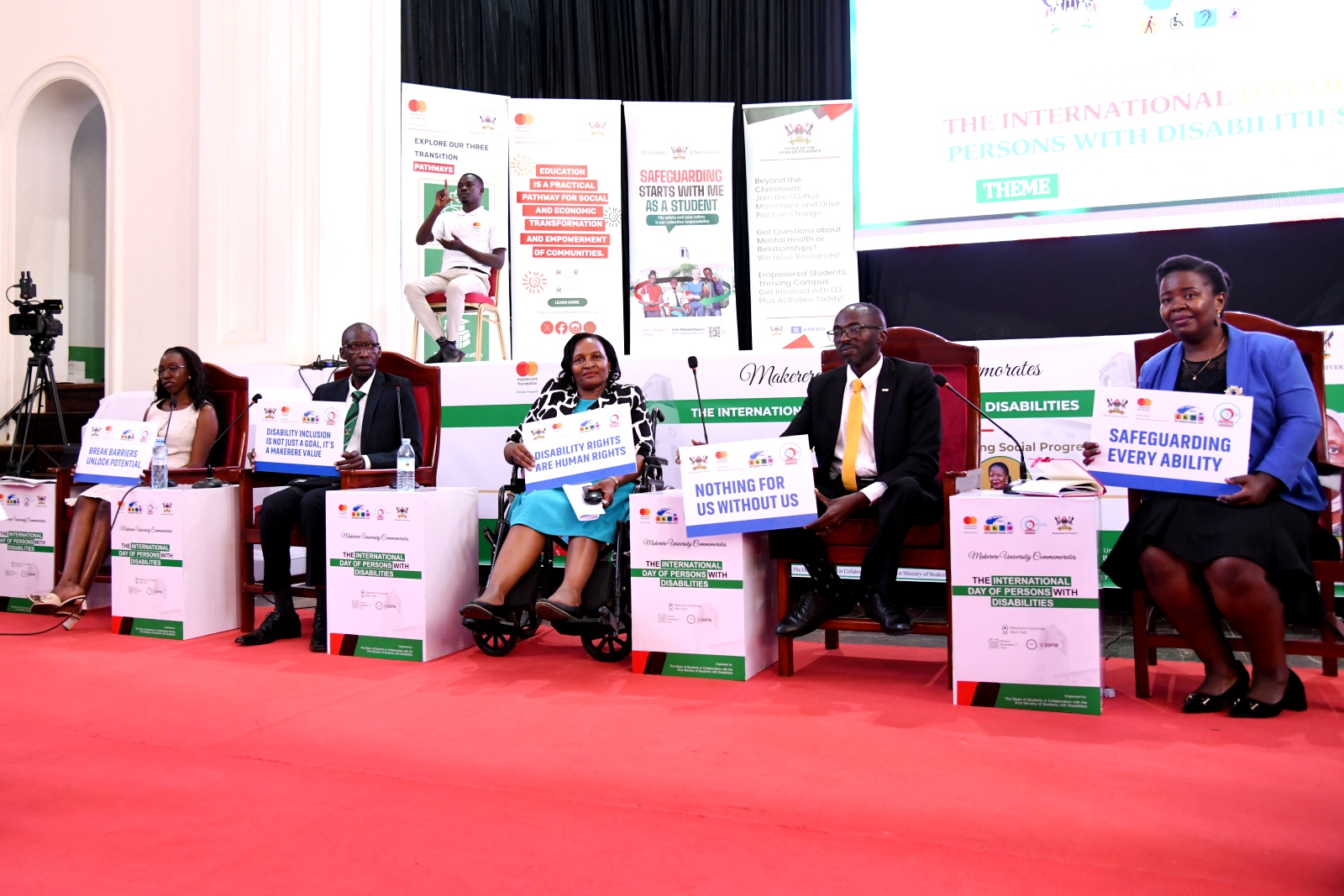
Prof. Frank Norbert Mwiine, the Ag. Deputy Vice Chancellor (Finance and Administration) and Principal of the College of Veterinary Medicine, Animal Resources and Biosecurity (CoVAB), delivered the closing remarks by thanking all participants for their thoughtful contributions and the spirit of unity shown throughout the commemoration. He emphasized that inclusion is not a one-day event but an ongoing responsibility that requires empathy, patience, and deliberate action from every member of the Makerere community.
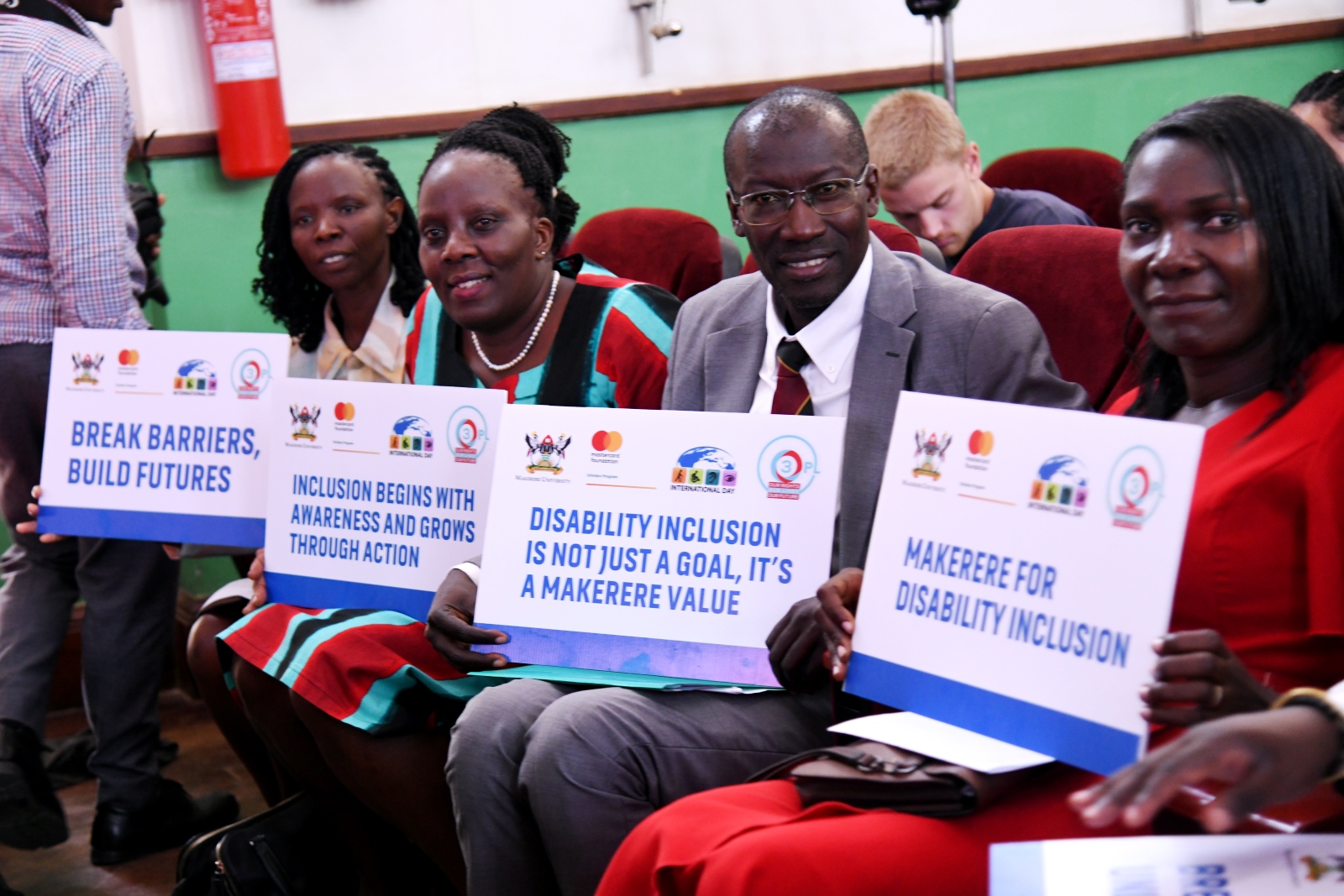
Drawing from personal experience and lifelong lessons of compassion, he encouraged staff and students to cultivate genuine sensitivity toward the needs of persons with disabilities and to champion inclusion in both mindset and practice. Prof. Mwine acknowledged the progress made—including accessible infrastructure, strengthened policies, and dedicated support services—while urging continued investment, collaboration, and accountability to ensure that Makerere becomes a place where all individuals can thrive without barriers. He ended by calling on the University to sustain the momentum built during the commemoration and to work together in building a more inclusive Makerere and Uganda.
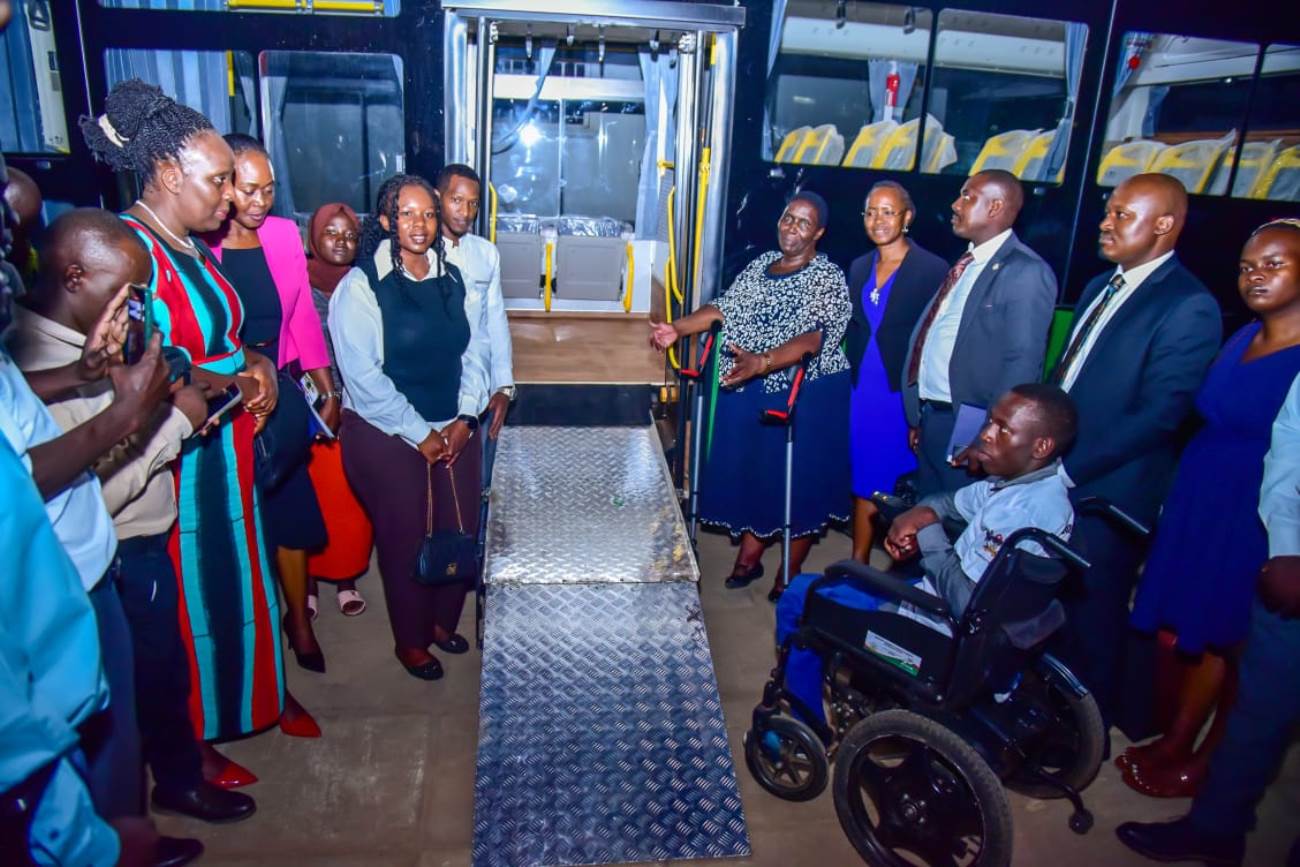
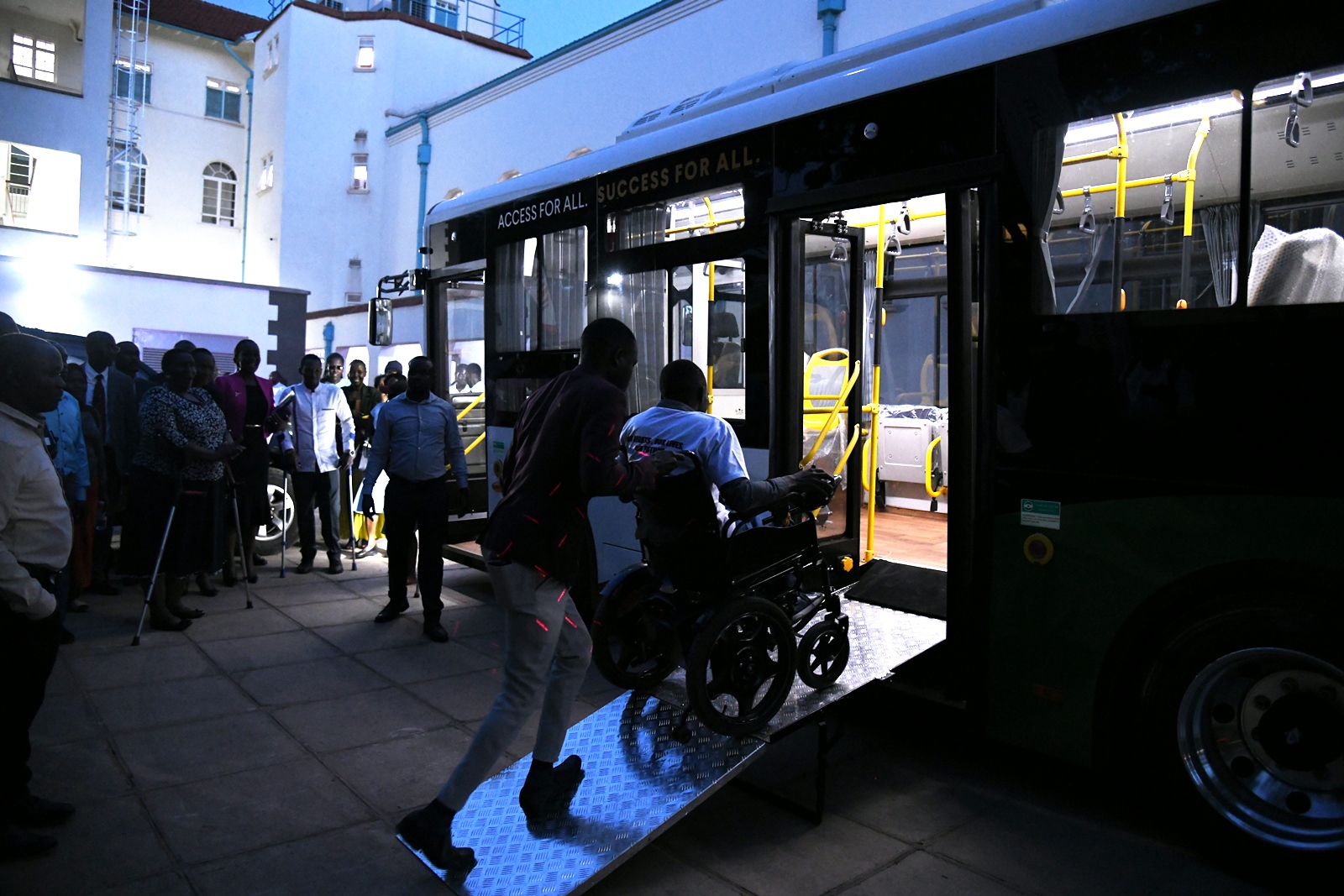
General
A Night of Celebration: Safeguarding Champions Mark Semester One Milestones
Published
2 days agoon
December 1, 2025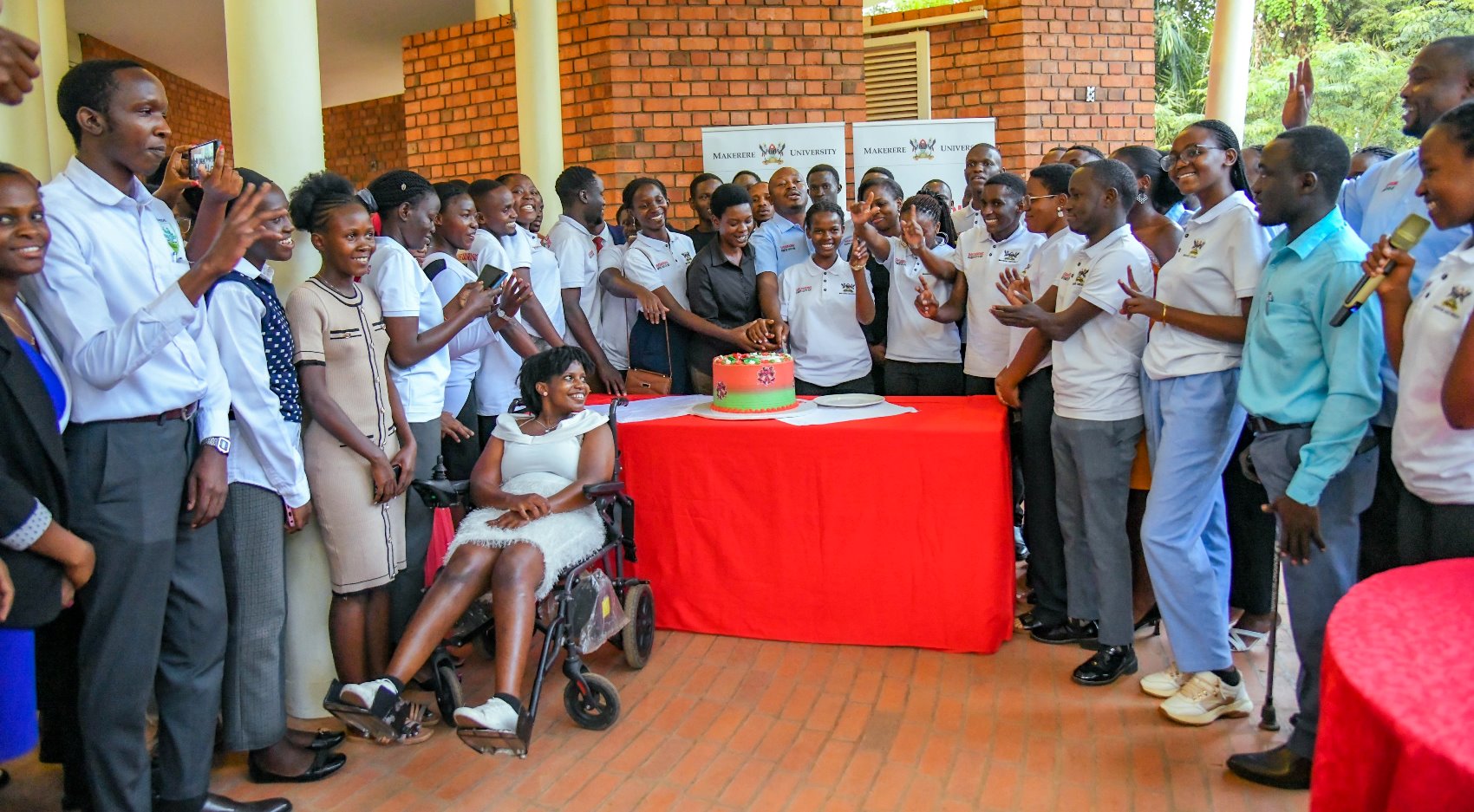
Excitement filled the air on Friday evening as Makerere University’s student and staff Safeguarding Champions gathered at the serene Makerere Institute of Social Research (MISR) Gardens for a memorable celebration of their Semester One achievements.
The event, which blended elegance with purpose, brought together Champions from across the University community to honour their hard work, dedication and shared commitment to building a safer campus for all.
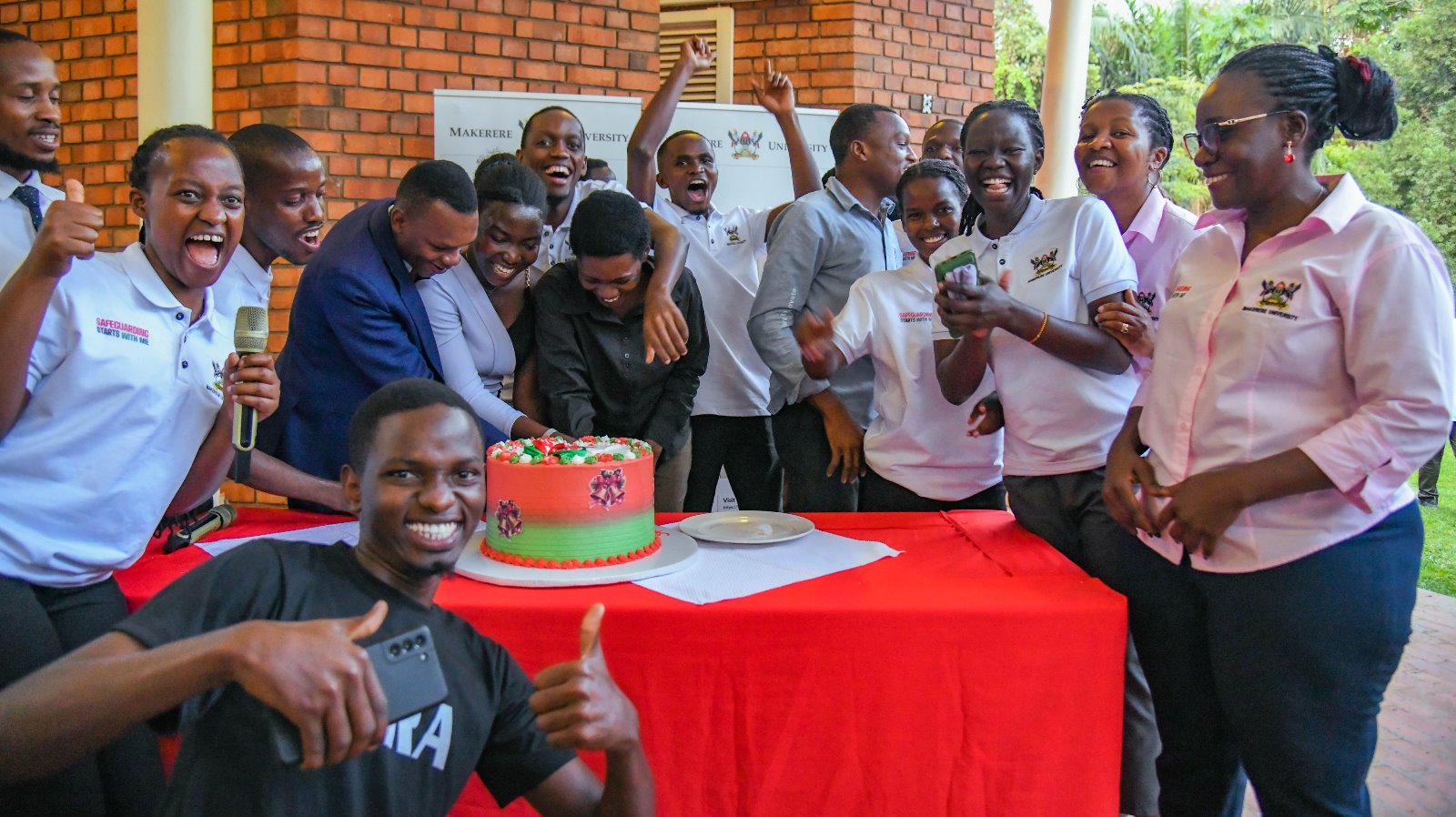
The gardens came alive with warm conversations, laughter and energizing music as Champions checked in and made new friends.
The dinner was more than just a celebratory moment, it became an important space for learning, networking and strengthening collaboration. Champions shared experiences from the semester, discussed challenges they had faced while supporting peers and colleagues, and exchanged new ideas to improve safeguarding awareness across the University.
Addressing the champions, Dr. Rodney Rugyema, the Acting Principal Warden who represented the Dean of Students, Dr Winifred Kabumbuli, emphasized that the efforts of Safeguarding Champions continue to play a critical role in strengthening trust and ensuring the wellbeing of all students and staff.
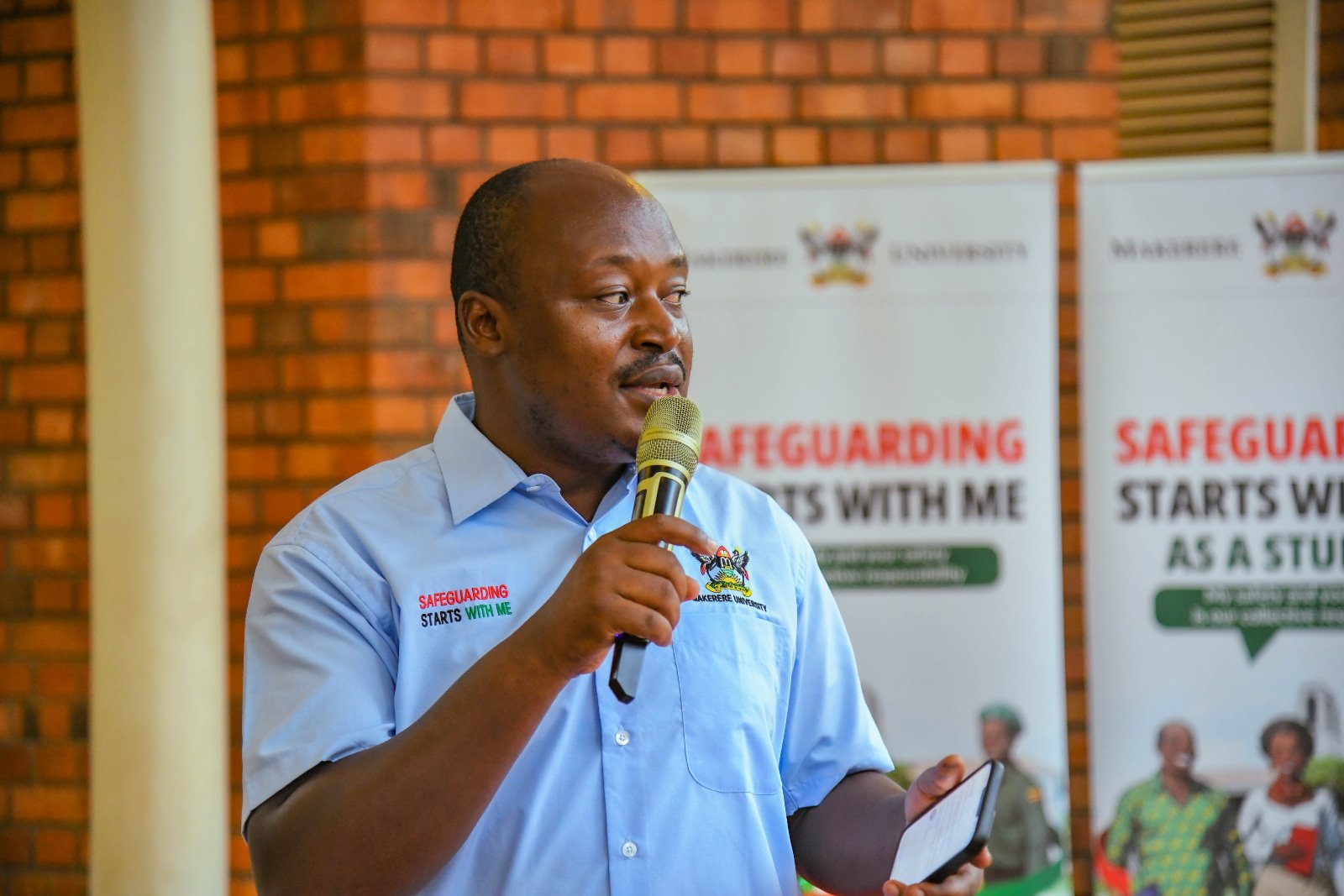
The atmosphere was filled with gratitude, pride and a renewed commitment to building a safer and more inclusive community at the University.
Speaking at the dinner, Prof. Justine Namaalwa, Director Mastercard Foundation Scholars Program at Makerere University, applauded the Champions for their dedication, vigilance and exemplary leadership in promoting safety, dignity and respect on campus
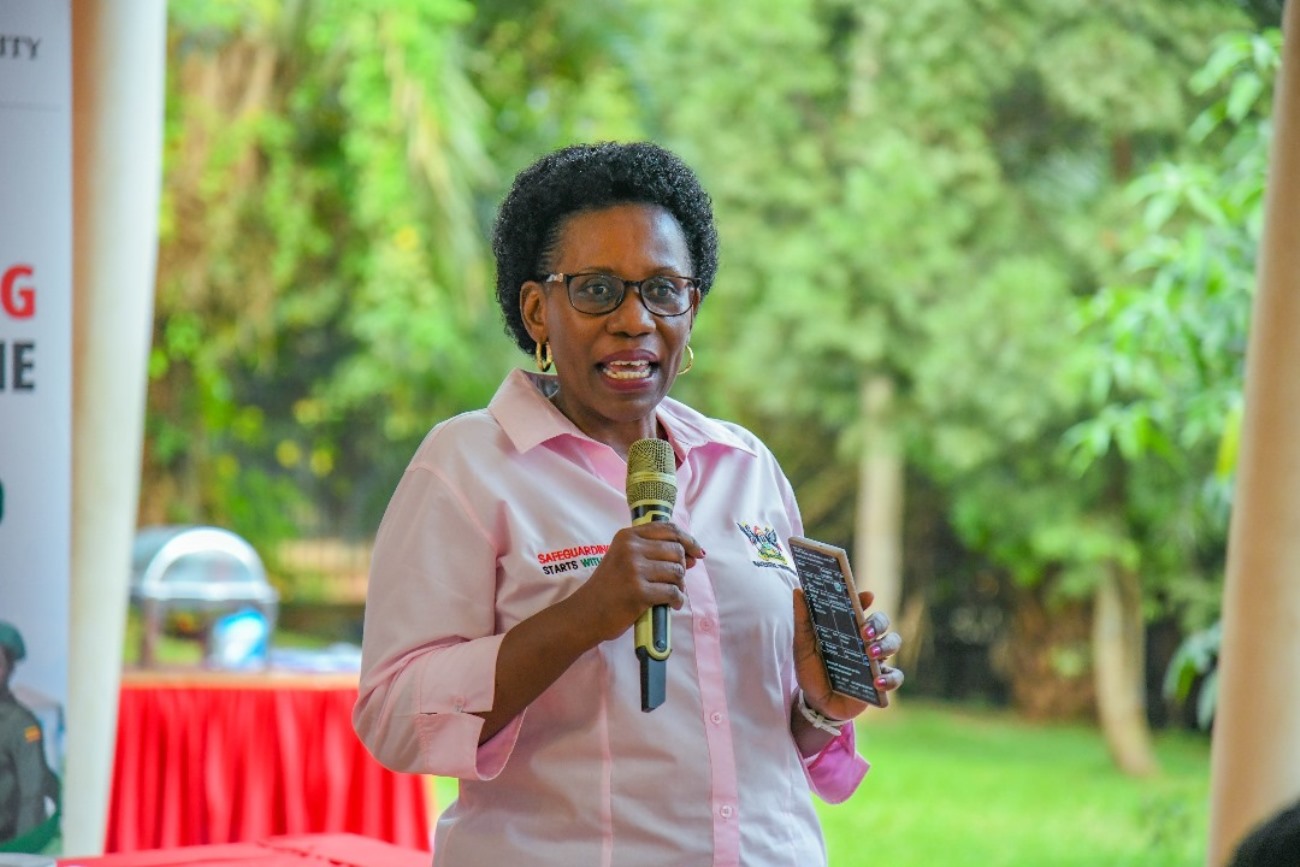
“As we gather to celebrate our progress in enhancing the Safety and Wellness of Students and Staff, it is important to acknowledge those who have made this possible- The University Leadership, Student and Staff Safeguarding Champions. We also acknowledged our Partner the Mastercard Foundation for the support in strengthening safeguarding and inclusion at Makerere,” Prof. Namaalwa, said
During the dinner, different student champions shared their success stories for the semester.
“This semester has proved to us that when students and staff work together, we can create a University environment where everyone feels protected, respected and valued. Tonight is a celebration of our collective effort, but also a reminder that the work continues. We pledge to stay vigilant, to listen, and to respond with empathy and integrity,” Precious Ssenonga, a second-year student from the College of Computing and Information Sciences, said.
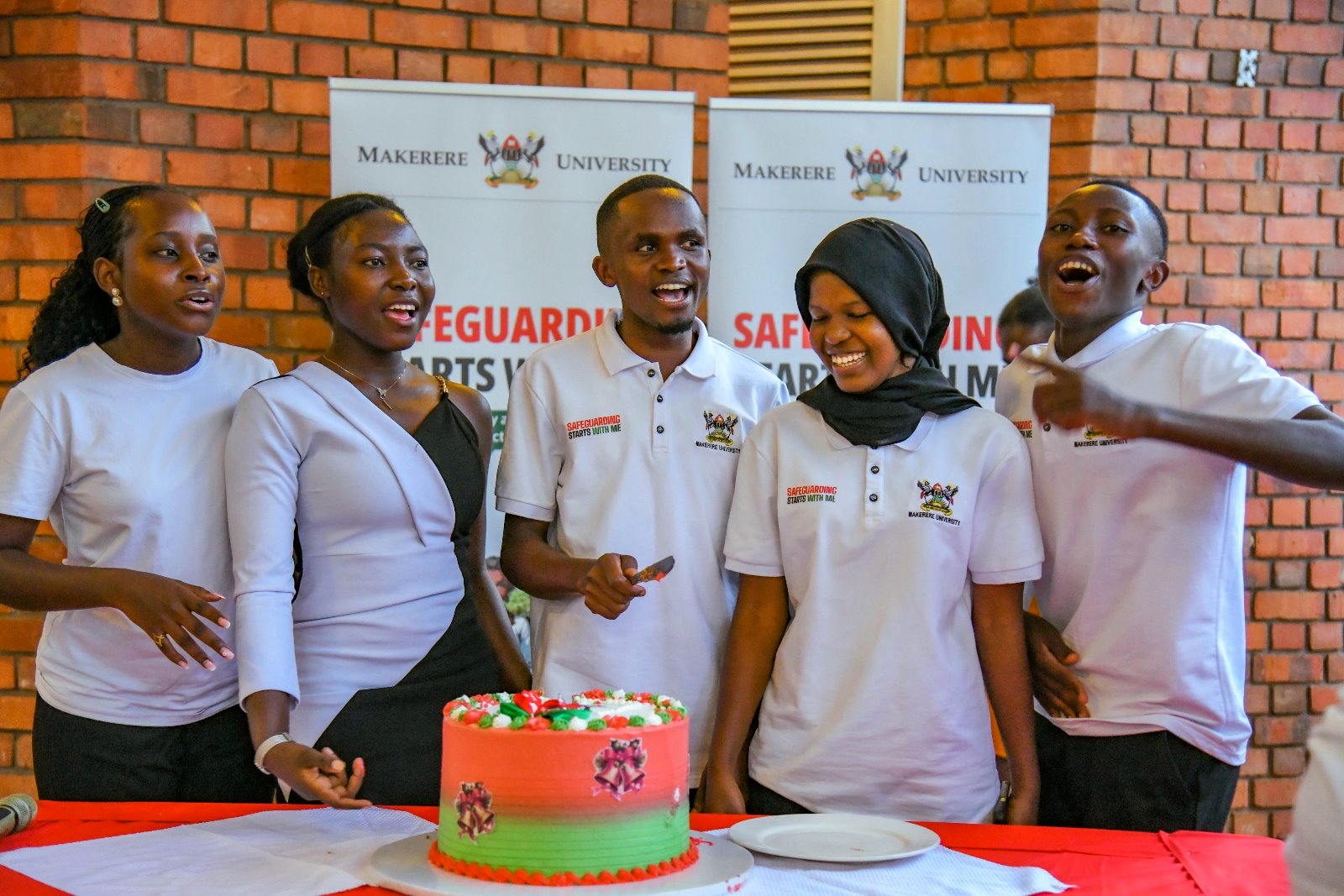
Samuel Ssempijja, a second-year student of pursuing the Bachelor of Education, noted that during the semester he encouraged fellow students to utilise the MakSafeSpace and that gave many confidence to report cases.
“During the MakRun, several students’ phones were stolen. I advised them to report the theft case through MakSafeSpace, our online safeguarding platform. The students were impressed by how quickly the security team responded, and it reassured them that their concerns are taken seriously by the University Management. MakSafeSpace has shown us that timely reporting and timely action can truly make a difference.” Ssempijja, noted.
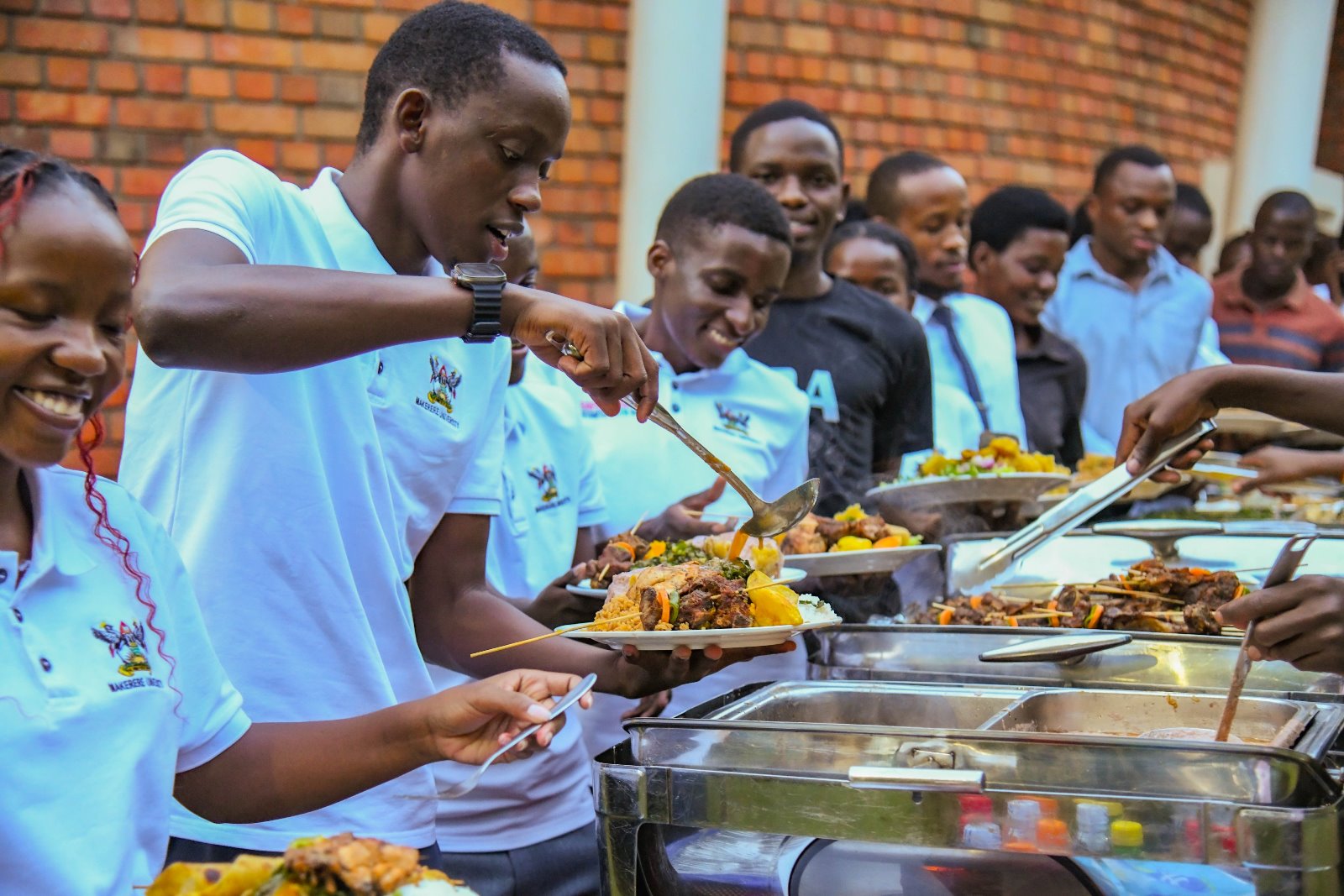
The event closed with farewells and promises to carry the spirit of the evening into Semester Two. For many, it was more than a dinner, it was a reminder that together, they are building a University environment where every student and staff member feels safe, valued and included.
About Safeguarding Initiatives at Makerere
In this era of heightened awareness and scrutiny surrounding safeguarding practices, Institutions of higher learning are increasingly rated by not only their academic excellence but also on their commitment to creating a safe and supportive environment for all members of their community.
The potential safeguarding risks in Institutions of higher learning include emotional distress, Sexual Exploitation, Abuse and Harassment (SEAH); material loss, financial exploitation, discrimination and neglect, unfair and illegitimate response to civic engagements, cyber security/threats, psychological and emotional harm, substance abuse, and physical assault.
Discrimination and neglect are often high risks for students with disabilities and international students.
Makerere University has a duty of care and to promote the wellbeing of all students, staff and other University community stakeholders. It seeks to enhance the learning environment to make it more secure, inclusive, and ethically sound for all stakeholders.
The Safeguarding policy lays out the University’s framework for embedding viable safeguarding measures into its ethos and all institutional activities and processes to: identify, detect, and act swiftly on safeguarding risks; prevent the occurrence of harm; provide mechanisms for reporting all allegations or incidents that have occurred; respond appropriately to all reported incidences; and, continuously monitor, evaluate and learn from practices and experiences of managing safeguarding concerns.
General
From Mastercard Foundation Scholar to Changemaker: Dr. Ekwaro Ronald’s Vision for Eye Health in Uganda
Published
3 days agoon
December 1, 2025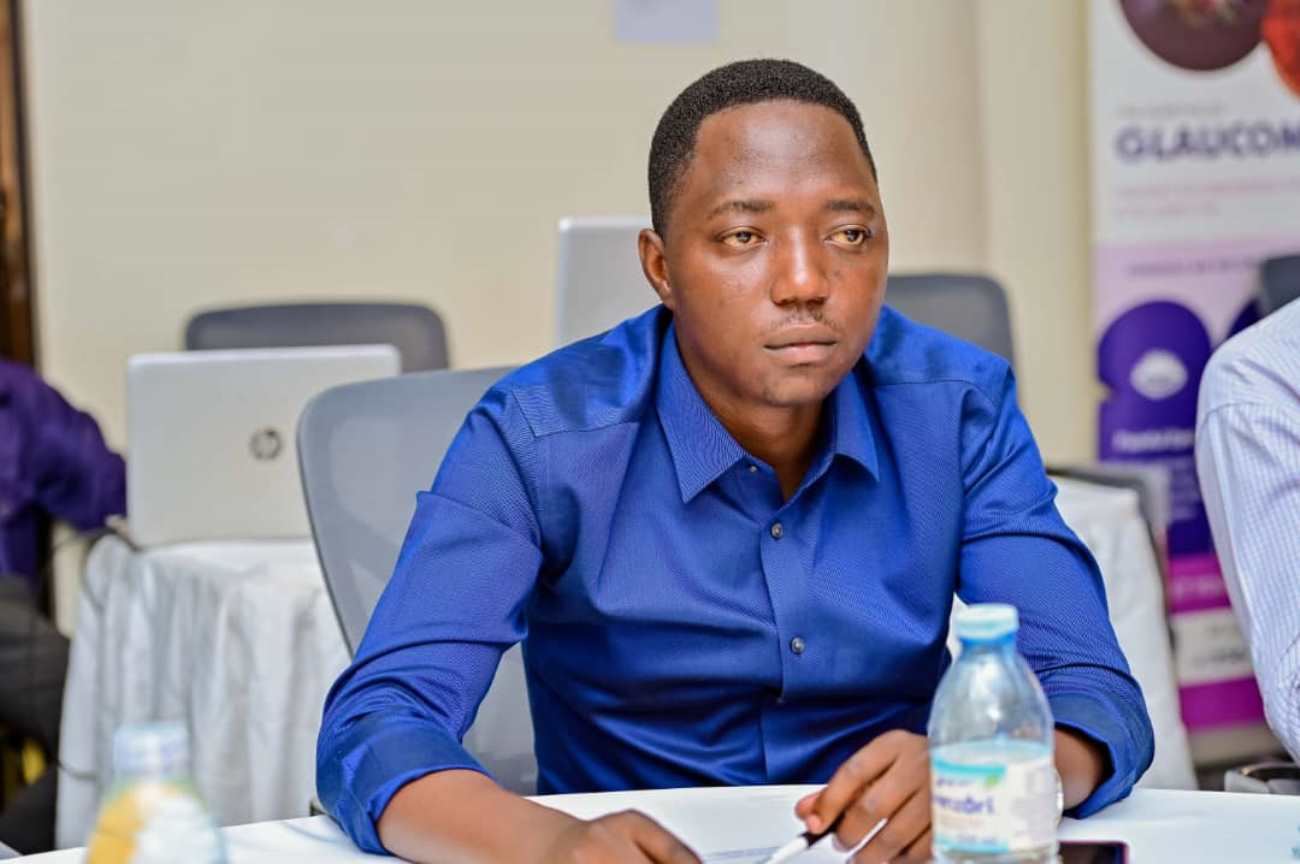
Dr Ekwaro Ronald, a Mastercard Foundation Scholars Program Alumni at Makerere University, is committed to enhancing eye health in Uganda. He plans to establish the country’s first Myopia Control Centre, dedicated to safeguarding the eye health of young people in Uganda and neighbouring nations. This goal is within reach, given his experience and commitment. At present, he is gaining valuable experience in the Optometry Department at Mengo Hospital, one of Uganda’s largest private hospitals. His dedication and efforts were recognised last year when he received the hospital’s best optometrist award.
His Early Life
Ronald was born on May 5, 1997, in the Oyam District of Northern Uganda. He is the youngest of eight siblings, comprising six boys and two girls. Tragically, Ronald’s father, a primary school teacher, passed away just two months after his birth. This loss placed Ronald and his seven siblings under the care of their mother, a single parent and smallholder farmer, who became the sole provider for the family.
Early Education
Ronald took a unique path in his education, starting school at the age of seven at Alutkot Primary School in his neighbourhood. With his elder brother’s encouragement and support, he completed Primary Five. He then moved on to Masindi Army Day Primary School for Primary Six, where he was supported and lived with his other elder brother, who served in the army at the time. For Primary Seven, Ronald returned to his village home and completed his primary leaving examinations at Loro Primary School. Despite the challenge of walking approximately 2 kilometres to attend school, he demonstrated determination and resilience in his pursuit of education.
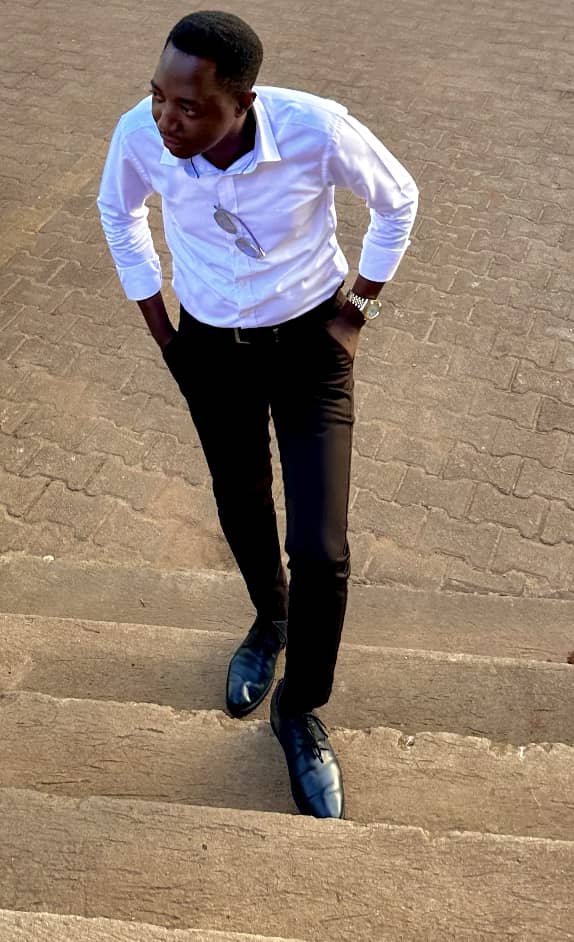
Secondary Education
Despite the challenges he faced and the frequent changes of educational institutions, he completed Primary Seven with a first-grade distinction. One of his elder brothers, a primary school teacher, provided financial support for his continued education. Consequently, Ronald was enrolled as a boarding student at Blessed Comboni Secondary School in Kiryandongo District. However, due to financial constraints stemming from his brother’s limited income, he transferred to Masindi Army Secondary School in his second year. This transition occurred under the Universal Secondary Education (USE) programme, an initiative of the Ugandan government that offers free secondary education to young individuals from communities facing social and economic barriers.
While attending Blessed Comboni Secondary school, he lived with his elder brother in a military barracks, which exposed him to military life from an early age. This experience of living in an army environment significantly shaped his fearless and resilient character, enabling him to navigate the challenges of growing up without a father.
In 2014, he performed excellently in his Form Four final examinations, earning a first-grade qualification. Afterwards, he received support for his A-Level studies through BRAC-Uganda in partnership with the Mastercard Foundation Scholars Program. He then joined Seeta High School Green Campus in Mukono, where he studied Physics, Chemistry, and Biology (PCB).
Joining Makerere University
In 2017, after excelling in his final A-Level exams, he once again became a Mastercard Foundation Scholar at Makerere University through the Mastercard Foundation Scholars Program, to pursue a Bachelor of Science in Optometry, a four-year eye healthcare programme at the College of Health Sciences.
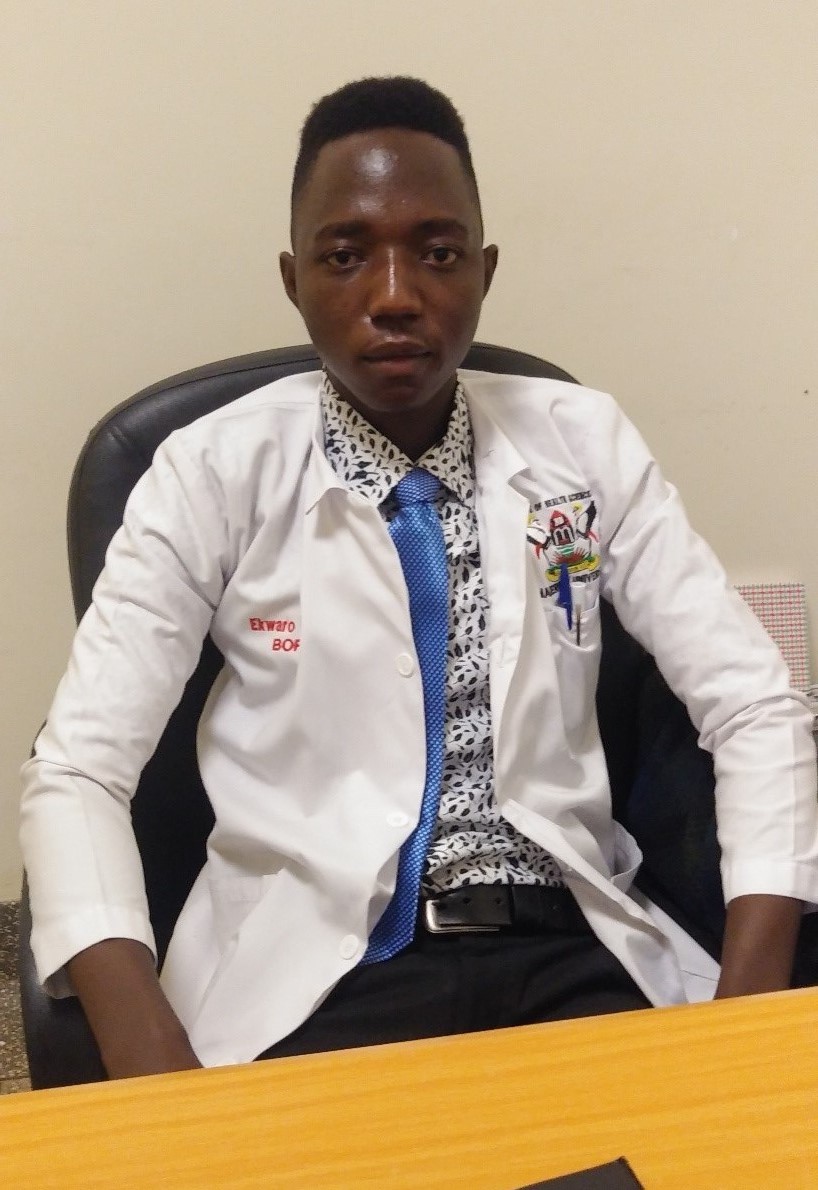
“I chose Optometry because of my passion for optics and physics. At Seeta High School Green Campus, I was the only student to score an A in Physics in the 2016 Form Six final examinations. I wanted to combine my knowledge of Physics and Biology to help improve people’s vision,” Ronald explains.
While pursuing his studies at Makerere University, Ronald’s life transformed for the better, largely due to the robust support from the Mastercard Foundation Scholars Program. The support provided him with the opportunity to support his family while continuing his education. Notably, he utilised a portion of his monthly stipend to help his elder sister with her tuition for her final semester of nursing school, exemplifying the impact of his journey on his life and his family’s lives.
Ronald took proactive steps to kickstart his career as an Optometrist even before graduating. While studying at the University, he sought out various learning experiences and volunteer opportunities in eye care facilities to enhance his practical skills. His volunteer work at Dr. Agarwal’s Eye Hospital and Lapaire significantly enriched his curriculum vitae and provided invaluable hands-on experience in the field.
“I did not wait for graduation to pursue my career aspirations as an optometrist. From the beginning of my academic programme, I actively sought opportunities and volunteered at Dr Agarwal’s Eye Hospital and Lapaire. These experiences greatly enriched my curriculum vitae. I encourage fellow students at the university to begin exploring opportunities while still enrolled, as gaining relevant experience is vital for meeting the expectations of prospective employers upon graduation.” Ronald advises.
Life After Makerere University
Upon graduating from Makerere University in 2022, Ronald navigated the job market with remarkable ease, thanks to the strategic internships and volunteer positions he pursued during his studies. His proactive networking efforts paid off when he received an invitation to apply for a position at Mengo Hospital. Just two days before graduation, he was among three candidates shortlisted for interviews. This allowed him to celebrate his graduation with a sense of accomplishment, knowing he had already secured a job. He began his new role at the hospital shortly after graduation, marking the start of an exciting new chapter in his career.
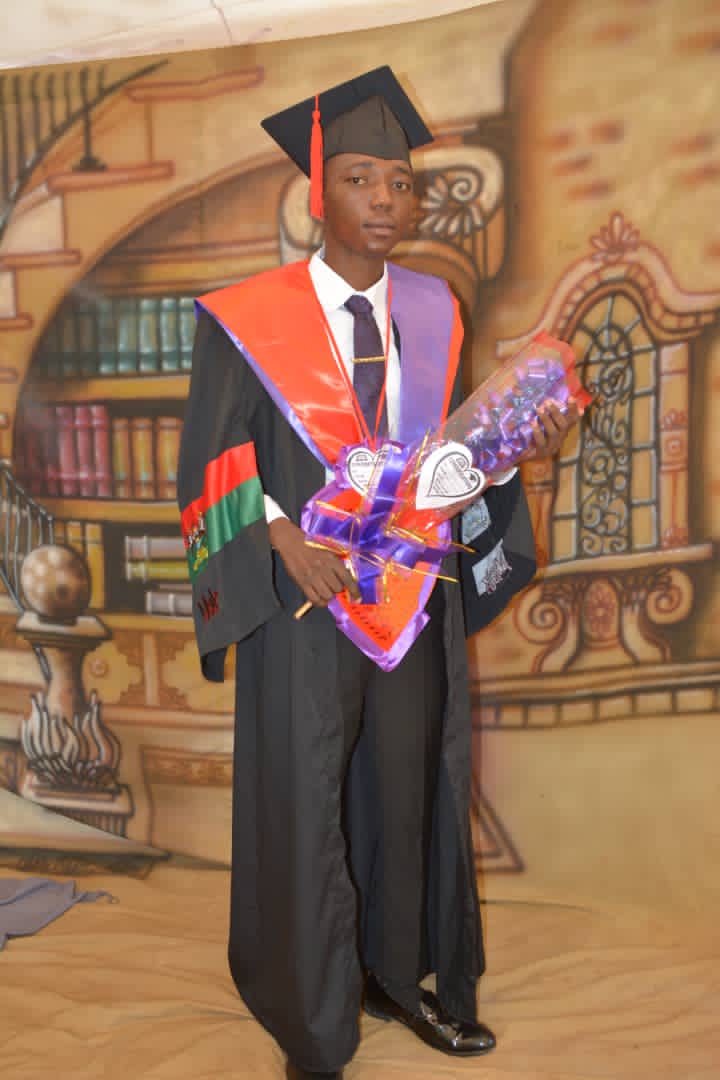
His Professional Life as an Optometrist at Mengo Hospital
Over the past three years at Mengo Hospital, Ronald has demonstrated professionalism, a sentiment echoed by his colleagues. His unwavering commitment to prioritising patients’ interests has not only earned him the 2024 Best Optometrist award at the Eye Department but also emphasised the positive impact of his work. Beyond his clinical duties, Ronald has developed a strong research interest. He is currently in the advanced stages of securing a grant from the World Council of Optometrists to study the progression of myopia (commonly known as short-sightedness) in children. He is optimistic that the findings will significantly aid advocacy efforts for myopia intervention strategies, ultimately helping to ease the challenges this condition poses for children in Uganda.
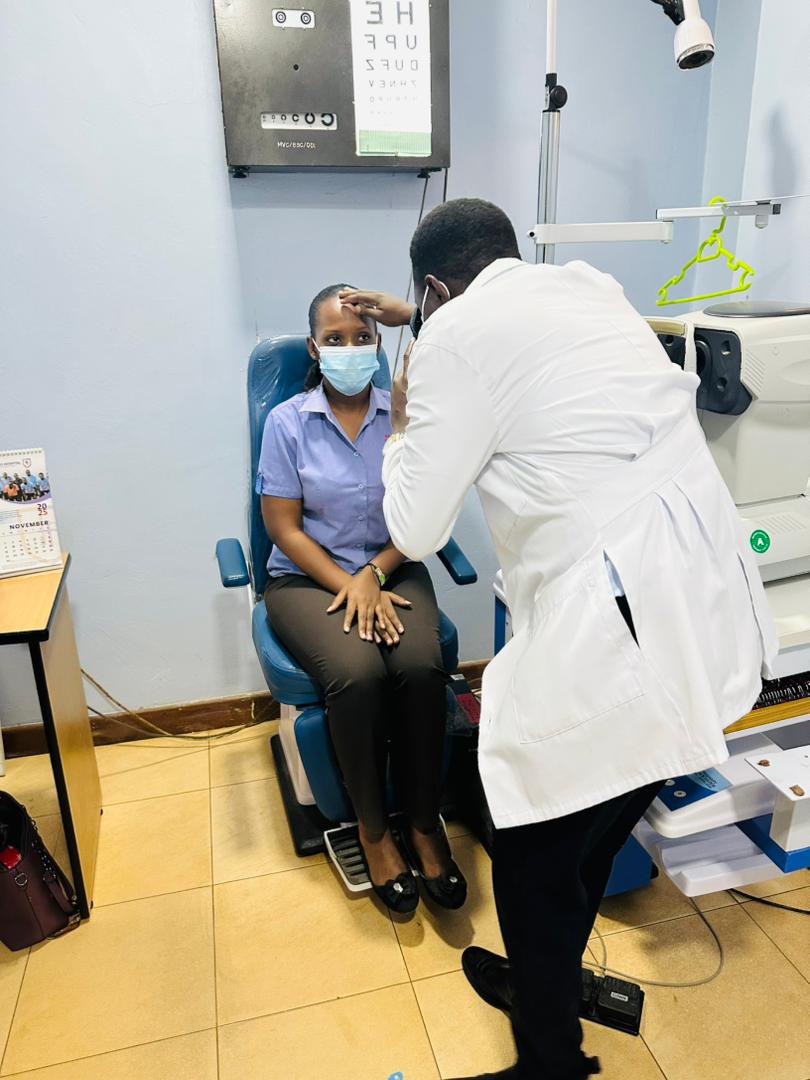
His Impact on the Community
With his siblings’ support, he successfully built a house for his mother in Oyam district, demonstrating his commitment to his family. He is also contributing to the tuition expenses of one of his nephews currently attending university, emphasising his dedication to education and the next generation. In 2024, he took part in a Mengo Hospital outreach team that screened and provided post-surgical care for over 100 patients who received free cataract surgeries, made possible by the generous support of Christian Blind Mission. The surgeries were performed at PAG Mission Hospital in Lira. Through his efforts, he mobilised numerous community members to take advantage of this initiative, leading to many people having their sight restored and enhancing the overall well-being of his community.
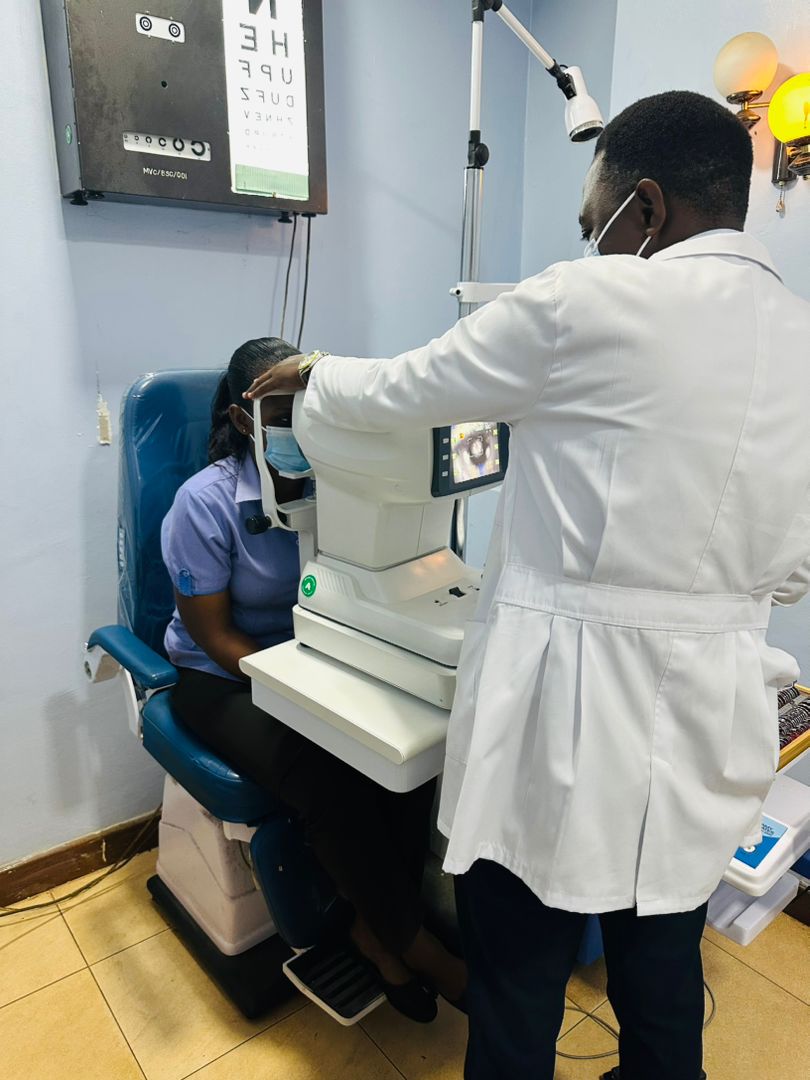
Looking into the Future
Ronald is on a mission to establish the first Myopia Control Centre in Uganda, aiming to make a significant impact on children’s eye health in the region. Currently, he is pursuing a Pediatric Optometry Fellowship at the Indian Academy of Optometry, where he is gaining valuable knowledge and expertise in myopia control. This training will empower him to lead a specialised centre dedicated to reducing the progression of myopia among children in Uganda. The centre will implement evidence-based interventions, including orthokeratology lenses and low-dose atropine eye drops, to effectively manage myopia.
Additionally, it will serve as a vital resource for identifying and addressing other childhood eye disorders that can hinder academic performance, such as squints, amblyopia (lazy eye), heterophorias, accommodative disorders, and convergence insufficiency. Through these efforts, Ronald envisions a brighter future for children’s vision and learning in Uganda.
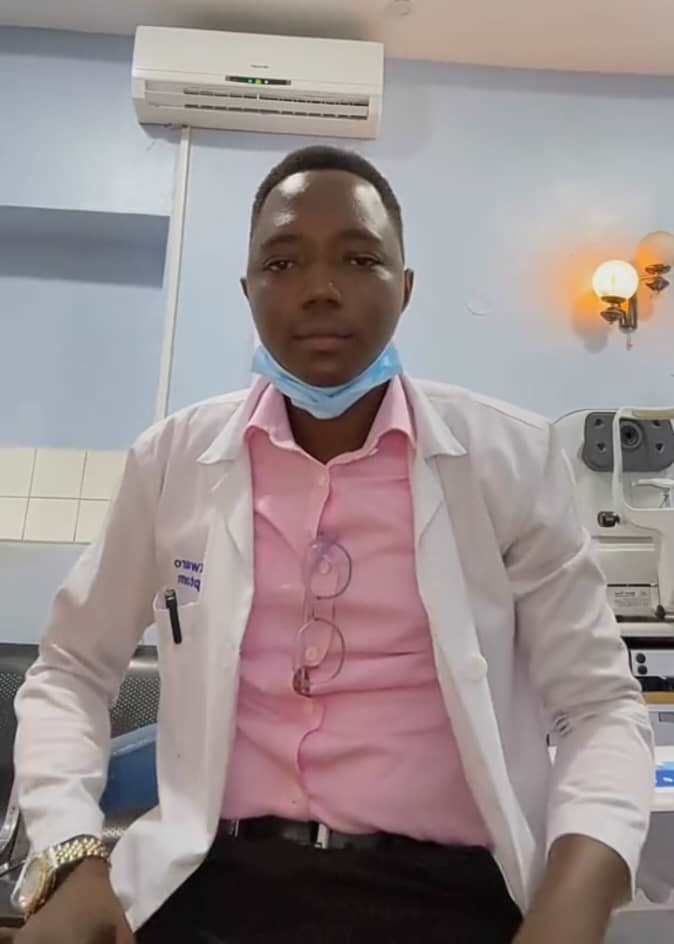
Message to Fellow Young People
Ronald encourages other young people to establish clear developmental goals and set specific timeframes for each one. He emphasises the importance of discipline and focus, urging them to stay committed and continuously strive for progress.
Words of Gratitude to the Mastercard Foundation Scholars Program at Makerere University
“I would like to express my profound gratitude to the Mastercard Foundation Scholars Program at Makerere University and the entire Mastercard Foundation team for their pivotal role in transforming my life and providing opportunities that were previously unimaginable. Your support not only facilitated my education but also reinstated my hope, dignity, and sense of purpose in my journey. As someone who faced barriers to opportunity, the Mastercard Foundation Scholars Program has served as a significant turning point, shaping my future and empowering me to become the individual I am today.” Ronald remarks.
Ronald emphasises that through the Mastercard Foundation Scholars Program, he gained access to quality education, mentorship, leadership training, and a community that believes in the power of young people to change the world. The Mastercard Foundation Scholars Program enabled him to devote himself fully to his studies and to support his family during critical moments, demonstrating both academic focus and a strong sense of responsibility.
“I am especially grateful for the values the Mastercard Foundation Scholars Program instilled in us: service, humility, leadership, and the responsibility to uplift our communities. These values continue to guide my professional journey and my commitment to improving eye health in Uganda.” Ronald pointed out.
The writer is the Principal Communication & Public Relations Officer for the Mastercard Foundation Scholars Program at Makerere University
Trending
-
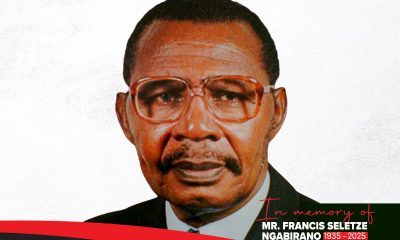
 General1 week ago
General1 week agoIn Honor of the Life and Legacy of Mr. Francis Seletze Ngabirano-A Steady Hand through the Storms
-
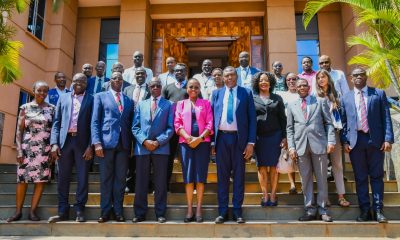
 Health6 days ago
Health6 days agoIDI launches the Sewankambo Training Program for Global Health Security in Africa
-
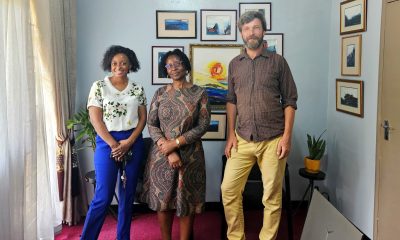
 Engineering, Art & Tech1 week ago
Engineering, Art & Tech1 week agoErasmus Exchange Prof.’s Mak Photo wins Poland National Prize
-
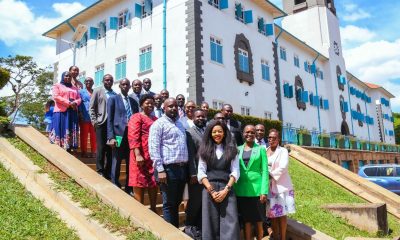
 General1 week ago
General1 week agoMakerere University Hosts Ambassador Judyth Nsababera for Strategic Dialogue Advancing Uganda–China Engagement
-
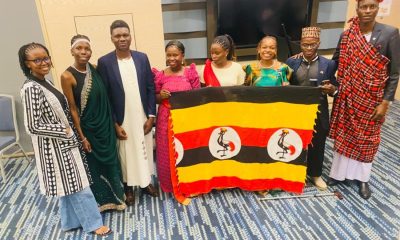
 General1 week ago
General1 week agoMakerere Students share experiences, connections and inspiration at inaugural For Youth, By Youth Conference in Turkey
